Meet the Doctoral Students
NANA SHAIBU AKAEZE
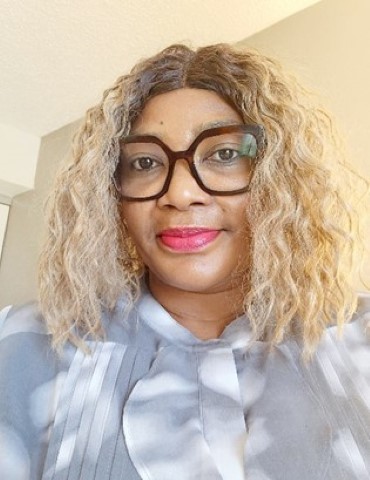
Nana Akaeze is resourceful, with over 14 years of experience in academic and business settings. Nana serves as an Adjunct Associate professor with Colorado State University Global Campus. Her professional experience has been in banking, human resources, and consultancy services. Nana also serves as a volunteer reviewer with the Scholink Journal of Business and Management Theory. She knows APA formatting, content, and alignment. Problem statement alignment; published peer-reviewed articles and research books. Professional Business Strategist. Nana Akaeze holds a Doctor of Business Administration degree (DBA) from Walden University, a Professional Certificate from Harvard University in Management Strategies, a Master of Business Administration degree (MBA) from DeVry University, and a bachelor's degree from Ahmadu Bello University in Business Management. Nana lives with her husband and children in Long Island, New York. She now looks forward to learning from her professors' and classmates' experiences.
Why did you choose TTU's PhD in Educational Policy Leadership for your doctoral program?
After I received a Doctor of Business Management Degree DBA, I felt the need to continue my educational pursuit. Life is about learning. Benjamin Franklin states, “An investment in knowledge pays the best interest.” The need for a Ph.D. from a reputable and affordable institution was intense. I researched the best University to serve my desire for education to impact society. Given my background, a Ph.D. in leadership and policy at Texas Tech University will afford me the knowledge needed and the opportunity to propose an educational policy that will help provide affordable, quality, and equality in education for the less privileged. TTU's Ph.D. in Educational Policy Leadership program met every standard for me, with an outstanding public research institute highly ranked worldwide. TTU dedicates efforts to aid and enhance student success by preparing learners to become ethical leaders committed to a diverse and globally competitive workforce. TTU's Vision aligns with my views of engaging in quality research on global educational issues by facilitating intercultural understanding between learners, faculty, staff, and the community in general.
What experiences in your career or previous education prepared you for a doctoral degree in educational leadership policy?
I started my career as a sales consultant. Within the last Ten years, I started developing my skills as an educator and earned a terminal degree in business management from Walden University. I have taught courses in Marketing, Organizational Change, Business Management, Capstone, Operation Management, and Principles of Finance as an Adjunct Associate professor with CSU Global Campus and other higher institutions. I love teaching and imparting knowledge to others while I learn in the process. I also offer freelance editing services for academic manuscripts. In business, I execute plans, strategies, and procedures on both short- and long-term basis. This involves coordinating human capital and financial material resources toward achieving organizational goals. I also own a nonprofit organization called Standing by Your Dream Initiative. I am now ready for a more challenging academic exercise. I know a Ph.D. degree in educational leadership policy will help me achieve open doors for another stage in my career. A Ph.D. in educational leadership and policy degree opportunity fits well with the direction I want to take in my career. The degree will equip me with the knowledge needed to engage in educational Policymaking. I look forward to tapping into the wealth of experiences of my peers and professors, who are vast in the education policy field. I expect the school's support system to avail me with the resources to accomplish this goal.
What impact do you expect to have on education policy and leadership?
My career goals with this program include promoting an education policy that will aid access to education for individuals willing to attend school and the less privileged to access affordable and quality education. With a background and terminal professional degree in business management, I hope to become an educational research scholar with a voice in educational policy, an educational policy analyst, and a University Professor. Among other research interests, with a Ph.D. in Educational Leadership Policy at TTU, I intend to explore peer assessments relating to institutional decision-making involving students with diverse backgrounds and academic systems and the ensuing challenges of education policy-to-practice
JESSICA ALFARO
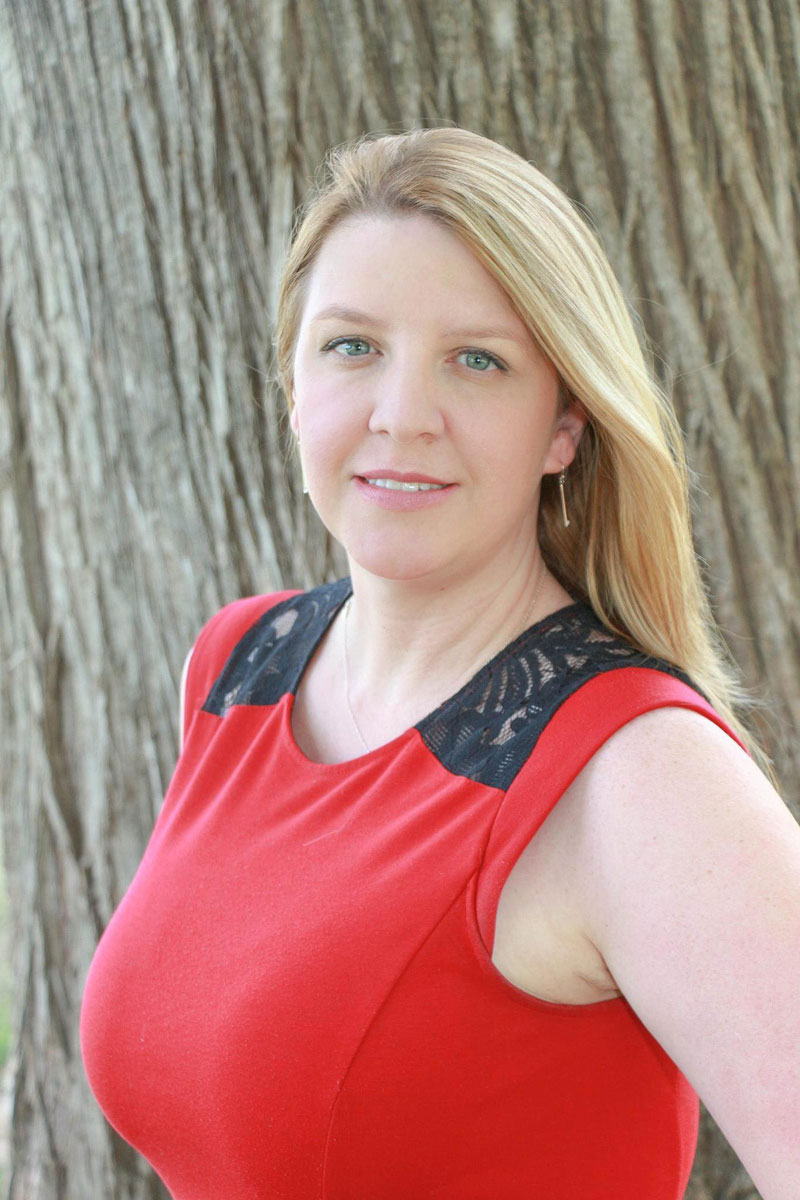
Originally from Rocky Mount, NC, Jessica began her educational path at Nash Community College. She received her BA in Hispanic Studies in 2000 from East Carolina University. Jessica returned to East Carolina University to get her MA in International Studies with concentrations in International Higher Education Administration as well as TESOL Master's Certification. Professionally, she began teaching Spanish in 2002 and taught until 2013 when she started as Director of PCC Global at Pitt Community College in Greenville, NC. Jessica moved to Texas in 2016 and returned to the classroom until 2018 when she became Manager of International Student Admissions and Records at Austin Community College.
Why did you choose TTU's PhD in Educational Policy Leadership for your doctoral program?
I chose this program because of the reputation of TTU's online educational programs as well as it fit perfectly into my plan for the future. This program allows for me to continue to work full time and has the flexibility for me to tailor my research towards my area of education.
What experiences in your career or previous education prepared you for a doctoral degree in educational leadership policy?
I have been a teacher since 2002 in both K-12 Spanish as well as post-secondary adjunct classes followed by a director level position in higher education. I have been involved in state level advocacy in my area of education.
What impact do you expect to have on education policy and leadership?
I have seen first-hand the impact education has on a person's life and want to be in a position where I can make a true impact to help people be able to become all they can. I want to be able to impact global education on a higher administrative level. I would like to make my mark on the world by my impact on comprehensive globalization at community colleges (or any institution of higher ed for that matter).
JOSH ARIEL ALMOITE
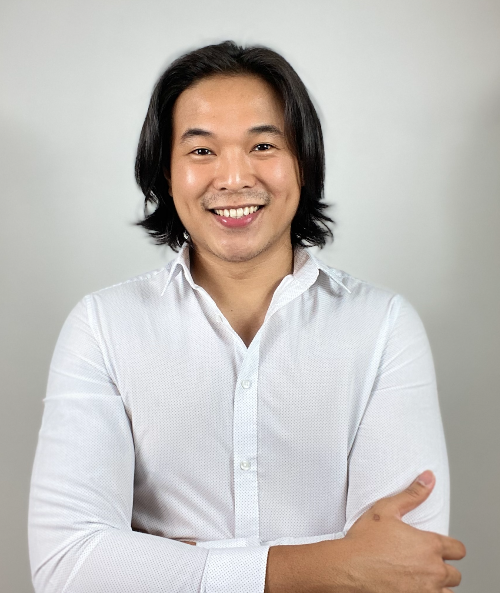
Josh is originally from the Philippines and currently living in Monterrey, Mexico. He received his Bachelor's degree in Education major in Science from Far Eastern University and his Master's degree in Education from Ateneo de Manila University where he majored in Educational Administration. He is currently working as a Curriculum Coordinator at the American School Foundation of Monterrey and as a Curriculum Consultant of other public and private schools. He has been working as an International Educator for more than a decade and has presented his method of differentiation and personalized learning that empowers student voice and choice in various international education conferences in different countries such as the Philippines, Dominican Republic, United States, Czech Republic, Mexico, and Australia. He is a certified Science teacher and holds his IB-MYP Head of School certification.
Why did you choose TTU's PhD in Educational Policy Leadership for your doctoral program?
Texas Tech University being recognized as a top tier research institution is definitely a great invitation for an international student like me who seeks an exceptional academic experience while working internationally. I have looked at many other institutions but TTU offers the exact program tantamount to what an international school leader seeks for. To experience rigor, research, and excellent education delivered online taking a deeper dive into educational leadership and policy making perfectly fits with my pursuit of quality education as a working professional.
What experiences in your career or previous education prepared you for a doctoral degree in educational leadership policy?
Being a school leader locally and internationally helped me see educational leadership and policy changes through the lens of schools from different social and economical levels. My experience as an international school leader and educator solidified my capacity as an organization leader and to seek a more profound scholastic quest to use educational leadership and engineer policies.
What impact do you expect to have on education policy and leadership?
Working internationally has helped me shape the very foundation of my principle as a school leader. I have seen how leaders from different types of schools I have worked with implemented changes and developed their policies. I intend to make an impact in the realm of education through policies that are responsive to building capacity of diverse teachers and learners, lead internationally to promote equitable and inclusive education, and use appropriate theoretical and methodological approaches to fundamentally change the course of educational reform and leadership in international education.
MARISOL ALONZO
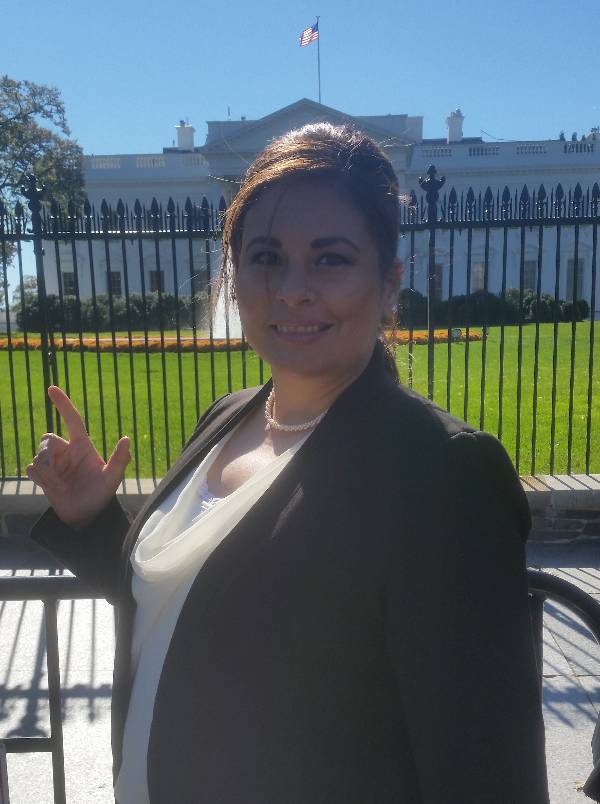
A Lubbock native, Marisol Alonzo serves as Research Compliance Specialist for Financial Conflict of Interest in the Office of Research and Innovation. Prior, she was a Registered Behavior Therapist at the Lubbock Autism Academy. Marisol was also the Program Coordinator for the Plains Bridges to the Baccalaureate Program in the Department of Environmental Toxicology at Texas Tech University. Marisol holds an Associate's in Science from SPC, a Bachelor's in Human Development and Family Studies, and Master's in Special Education with a concentration in Applied Behavior Analysis from Texas Tech University. Her research interests' areas are in autism for the overall quality of life for underrepresented children in the most vulnerable communities. She has a passion to empower, and mentor underrepresented minorities towards higher education. She enjoys volunteering with Los Hermanos Familia for community events, and her local church parish community. She enjoys spending time with her family and fur baby Milo.
Why did you choose TTU's PhD in Educational Policy Leadership for your doctoral program?
Texas Tech University is now a Carnegie Tier One Classification, and a Hispanic Serving Institution. Texas Tech University is ranked among the top best program rankings, best online rankings, and an increase in first generation students just to name a few. Working inside Raiderland since 2014, this diverse campus has brought about my Raiders Rojos passion and spirit.
What experiences in your career or previous education prepared you for a doctoral degree in educational leadership policy?
I bring about the experience of advocating for my son while navigating through the educational system with regards to special education and inclusion. Wherein, providing firsthand knowledge in recognizing the deficits and the gaps within the educational system. The knowledge gained from working as a registered behavior therapist has allowed me to implement evidence-based interventions and interpret data. My current position has prepared me in interpreting and implementing federal regulations. My previous research experience, and academic preparation has prepared me for the expectations of this program.
What impact do you expect to have on education policy and leadership? (or more simply, what do you want to accomplish?)
The program will help me to combine a rigorous academic study with hands-on experience towards areas of research, teacher education, program development, culturally inclusive curriculum, and evaluation for children in special education. This program will provide me with the platform to bridge the gap between policy and practice regarding implicit bias and cultural awareness training between administrators, teachers, and parents for a positive outcome in the child's life. Furthermore, to develop skills to initiate, develop, and lead policymaking and policy implementation informed by diverse stakeholder agendas both within and across local, district, state, national, and international communities.
GABRIEL BALDWIN
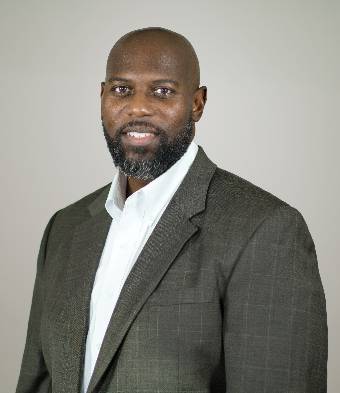
Gabriel Baldwin has been an educator in public education for more than ten years, all of which teaching mathematics to students in grades 6 – 8. He has a Generalist certification for grades 4-8, Gifted & Talented endorsed, and a Principal as Instructional Leader certificate in the state of Texas. Before teaching, he spent ten years in corporate America as a payroll and HR outsourcing sales consultant to small and medium-sized business owners and executives in Dallas/Ft. Worth. Gabriel has a B.A. in American Studies with a minor in Economics from the University of Texas at Austin and an M.Ed. in Educational Leadership from LeTourneau University. He enjoys mentoring middle school students, coaching the shot put and discus for young athletes, and spending time with his wife and two kids.
Why did you choose TTU's PhD in Educational Policy Leadership for your doctoral program?
TTU's Ph.D. in Educational Policy Leadership program is a highly reputable, local Ph.D. program that provided the affordability and flexibility that I needed. After my initial conversation with Dr. Alex Wiseman, he convinced me that this program would equip me with the necessary knowledge and experience to significantly impact the educational experiences of minority students from a policy perspective.
What experiences in your career or previous education prepared you for a doctoral degree in educational leadership policy?
As a classroom teacher and math department head at Title 1 schools over the last decade, I have witnessed firsthand the impact quality educators have on students of diverse backgrounds. I must leverage these experiences as I continue my doctoral path and begin my pursuit of a role as a campus and district administrator.
What impact do you expect to have on education policy and leadership? (or more simply, what do you want to accomplish?)
After completing this program, I expect to continue my passion and purpose for impacting all Texas students through education policy research, implementation, and reform.
HEATHER A. BALSIGER

Heather Balsiger is the Director of the Anatomy Lab and Willed Body Program at Texas Tech University Health Sciences Center El Paso. Ms. Balsiger established the Willed Body Program at TTUHSC El Paso in 2014 and has been working to increase awareness in the community about whole body donation, demystifying the donation process while emphasizing the importance of anatomical instruction for medical professionals. She also serves on the Anatomical Board of the State of Texas. An established researcher in the field of basic science and anatomy, Ms. Balsiger is a member of the anatomy faculty at TTUHSC EP and enjoys instructing medical students in the gross anatomy labs. Her strong basic science research background coupled with a deep passion for anatomy education has enabled her to implement policies and guidelines to innovate and enhance the academic curriculum. She has also emerged as a leader in the field by serving on the Anatomical Services Committee of the American Association of Clinical Anatomists, where she was tasked with co-writing the best practices guide for anatomical donation programs.
Why did you choose TTU's PhD in Educational Policy Leadership for your doctoral program?
I was drawn in by the multi-disciplinary approach used in this program as well as the accessibility of the online format.
What experiences in your career or previous education prepared you for a doctoral degree in educational leadership policy?
Most of the normal functions of my job at TTUHSC El Paso relate in some way to educational leadership and I am hoping to gain even more mastery of the subject.
What impact do you expect to have on education policy and leadership?
I plan to be an advocate and leader for a moral and ethical approach to anatomical donation and dissection.
BRADEN BECKNELL
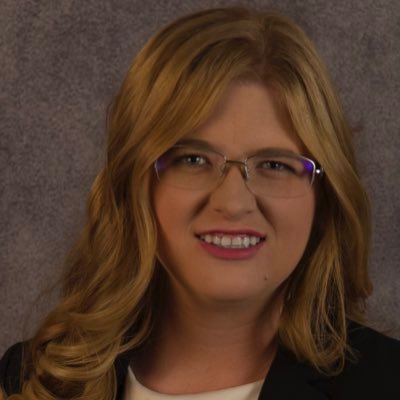
Braden Becknell of Corpus Christi is the Director of Workforce Development and Continuing Education at Coastal Bend College. As Director, Braden works with local businesses, federal contracts, and innovative technology such as virtual reality headsets. Braden received her master's degree in business administration from Tarleton State University and her bachelor's degree in business administration and marketing (minor in sports management) from Texas A&M University. Braden also received 14 national marketing awards for her work on advertising campaigns and social media channels while a Communication Specialist at CBC. Braden was recognized as a Corpus Christi Under 40 Award Winner in 2021.
Why did you choose TTU's PhD in Educational Policy Leadership for your doctoral program?
Texas Tech University's Ph.D. in Educational Policy Leaderhip Program provided the online flexibility I needed while working full-time. I appreciated the focus of putting theory into practice and the policy implementation process for education policies. The faculty in this program are well-known and distinguished in the program. After meeting with some of the faculty through the Education Policy Fellowship Program, I felt like my research interests closesly lined up.
What experiences in your career or previous education prepared you for a doctoral degree in educational leadership policy?
After graduating from Texas A&M University, I began working at Coastal Bend College as a Communication Specialist where I focused on outreach and recruitment through social media. My MBA prepared me to understand how decisions can effect educational organizations financially and what those implications can be. My current position has shown me a different side of education where businesses partner with higher education institutions to upskill and reskill their workers. Seeing education from different prospective has helped me see a wider view of how policies can have a wider impact.
What impact do you expect to have on education policy and leadership?
I have seen how education policies can create a ripple effect throughout the education sector and believe in the importance of crafting and implementing policies that benefit students. Through the Texas Education Policy Program, I saw how much goes into policy creation process and realized how much more I needed to learn to make a positive impact in Texas education.
GUADALUPE BRIGHT
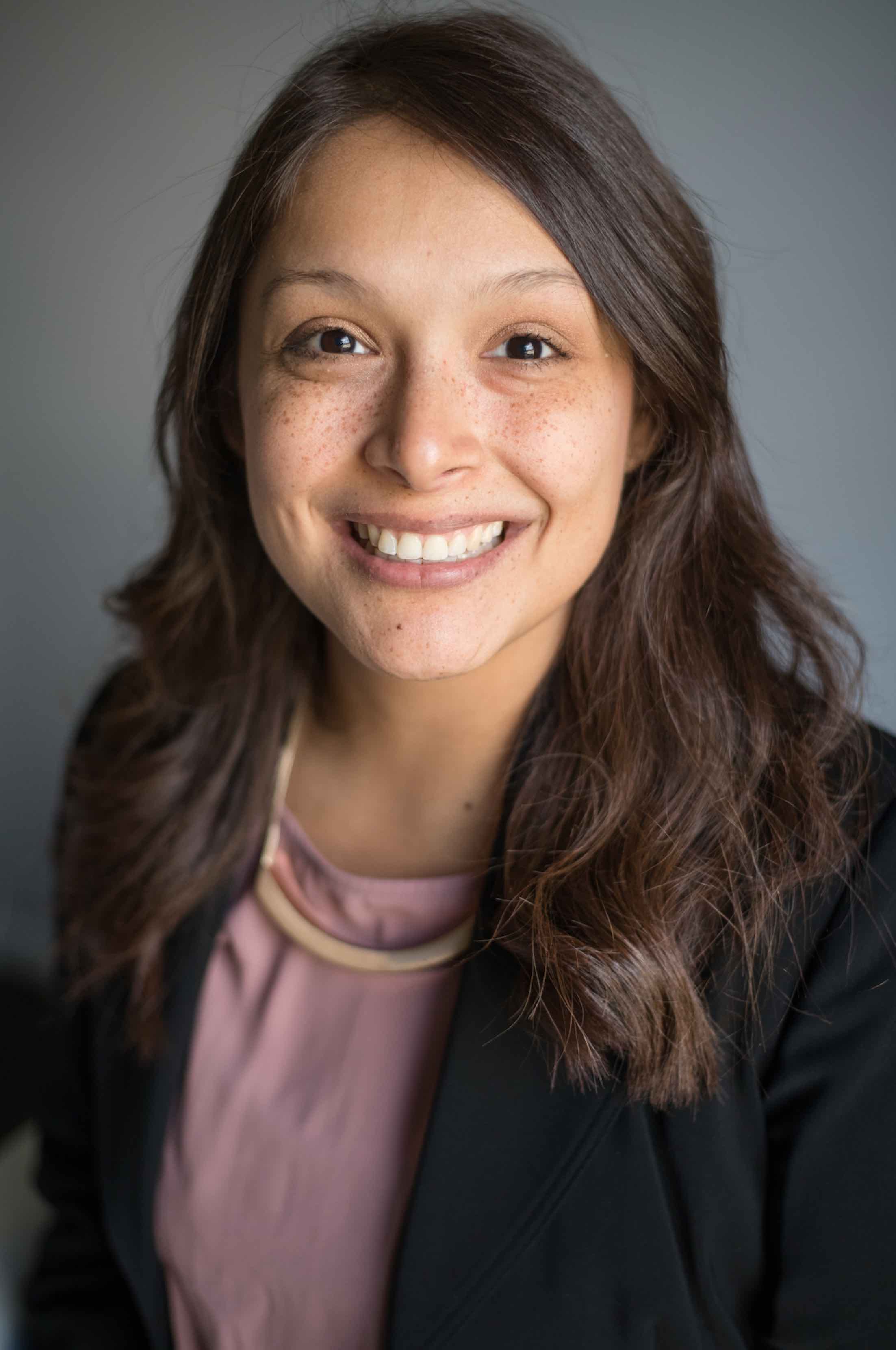
Guadalupe Bright, was raised in Columbus, Ohio and obtained her undergraduate degree from The Ohio State University. During her time at Ohio State she was published in a Ohio Latino newspaper, “El Sol de Ohio” for discussing and encouraging Latino families to encourage their youth to obtain a higher education. Her last semester there she was featured on the cover of The Ohio State Alumni magazine for her service in mentoring and promoting higher education among Latino students at Ohio State through the L.A.S.E.R. program. She then went on to obtain her Master's degree in Liberal Arts and Sciences at San Diego State University. She presented her academic paper “High School dropouts-an issue for the individual and the economy” in Japan at the Asian Conference on Education & International Development 2015. Afterward she joined AmeriCorps and the New Teacher Project and went on to teach 1st grade in Nevada. She is back in Columbus, Ohio where she works in the ESL department for the biggest school district in the state.
Why did you choose TTU's PhD in Educational Policy Leadership for your doctoral program?
Several reasons lead to me selecting Texas Tech, first it was the flexibility it provided me to take care of the needs of my family. In addition, it is classified as a research one institution. My first experience with research was in y undergraduate program, and it has impacted my life, and therefore the ability to research relevant topics was key to my success.
What experiences in your career or previous education prepared you for a doctoral degree in educational leadership policy?
In high school I was privileged to attend a STEM, Early College High School where I had the opportunity to speak at events around STEM education. College allowed me see life in new perspectives and my mentor was thrilled when I asked to contribute to her research project, where my passion for research began. During my Master's degree I presented my research on education at two international conferences and then joined AmeriCorps to teach in Nevada. Home called in back, where I work for the biggest district in Ohio. It was all these and many other experiences that prepared me for a doctoral degree in educational leadership policy. The experiences allowed me to see the huge difference in resources, how that can affect education and how it is not the students fault.
What impact do you expect to have on education policy and leadership?
If I can have only one impact it would be for everyone in the education policy system to understand that as adults, we are the ones making choice for children who by chance were born into their circumstance and have no power in changing that, but that we as policy makers and adults do. I believe if we can all keep that in mind when thinking about, and writing policy we can begin to see a change in our educational gap for the good.
ZAHRA BOUDAOUI
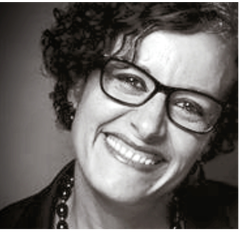
French native passionate professional with strong commitment and dedication to students, Zahra is always seeking to improve her knowledge and skills. She has built her career in a variety of roles. She is used to wearing many hats, and she genuinely enjoys it! She also thrives in an environment where no workdays are alike. Zahra speaks fluently different languages, thanks to her breadth of multicultural experiences, and her passion for learning and education. Zahra serves as the International Baccalaureate Diploma Program Coordinator at a private school in Dallas, Texas. Before teaching, she spent ten years in corporate as a Real estate property manager in France. Being a lifelong learner, she likes being a student herself. She just graduated with her third Master's degree. She enjoys working with students, being an advisor, guide students, and empower them. Zahra loves to travel the world!
Why did you choose TTU's PhD in Educational Policy Leadership for your doctoral program?
The educational field is evolving. Educator requires different roles in the profession. I choose to pursue my Ph.D. program with Texas Tech University because applying in this particular doctoral program because I believe that I will gain skills that will allow me to grow in my advanced professional career in the fields of educational leadership. This program will help me to have a better understanding of managing the dynamics of policy and change. Moreover, working with educational leaders to provide better education and, above all, develop a more effective partnership in the field of education to better deliver students' outcomes. Being equipped with the necessary tools to drive education forward and contribute to the development of sustainable solutions. Beyond the University's ranking, having the opportunity to be taught and mentored by professors experts and experienced in educational policies will allow me to go above and beyond. Working in education for the past ten years has been the best learning and rewarding experience. I love being a student and learning every day; learning never stops!
What experiences in your career or previous education prepared you for a doctoral degree in educational leadership policy?
Working in the private sector for ten years allowed me to develop management skills and understand the environmental, economic, and structural contexts of organizations. My two enriching and constructive backgrounds and my educational experiences, I have realized that education is a complex and dynamic system that evolves where many different entities interact and play an essential role in engaging and influencing decision-making, change and practice.
What impact do you expect to have on education policy and leadership?
Pursuing the Educational Leadership Policy Ph.D. program will prepare me for a leadership role and equip me with the tools and skills to provide better learning and teaching students outcomes and equitable educational experience for students and families.
JESSE BULLOCK
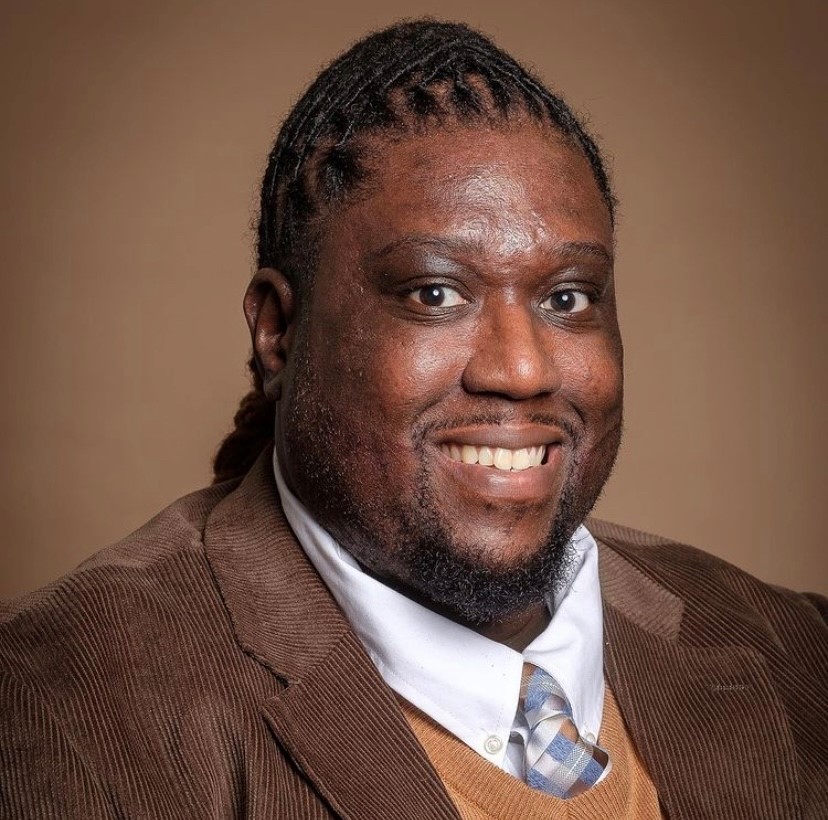
Jesse is a Ph.D. student focusing on Educational Leadership Policy and he researches issues involving student discipline, educational access, and minority student opportunities PK-20. He is most interested in the intersection of the criminal justice system with the educational system, taking an in-depth look at the police-school relationship, the use of police officers for handling student behavioral issues, and the criminological theories influencing the development of educational policies. He is a native of Rocky Mount, NC. He completed his B.A in Philosophy and B.S. in Biology from Howard University in Washington, D.C., his M.S. in Criminal Justice from North Carolina Central University in Durham, NC, and he also earned his J.D. from the Howard University School of Law. He is licensed to practice law in the State of Maryland and before the Supreme Court of the United States.
Why did you choose TTU's PhD in Educational Policy Leadership for your doctoral program?
I chose the doctoral program in educational leadership policy at Texas Tech University because I liked the focus on providing students with not only the theoretical foundations and research skills for a future career, but also the emphasis on putting theory into practice. Moreover, the College of Education has also included access and engagement as one of the main priorities for the future. This, undoubtedly, provides its students with an opportunity for learning about modern-day issues from colleagues with a diverse background and experiences.
What experiences in your career or previous education prepared you for a doctoral degree in educational leadership policy?
The capstone research project in my graduate program allowed me to combine my interests in educational policy, criminal justice, law, and sociology to study the impact of zero-tolerance policies in schools on minority students. In the capstone project, I focused on the connection of the aforementioned policies with “get-tough” criminal justice policies. The intent behind the research was to show the nexus between both types of policies with the principles that guide much of criminological thought in the form of deterrence theories. As a Ph.D. student, I intend to continue learning about the ways in which our educational system and the criminal justice system overlap.
What impact do you expect to have on education policy and leadership?
I believe that education is one of the most important tools that individuals can use to bring about change within their personal lives, the local community, and the global society. One could argue that many of society's challenges could be resolved once the issues within the education system are properly addressed. As an educator and education policymaker, I would like to see education policies that reflect equitable educational opportunities for all students. Moreover, I would like to ensure that every student has the opportunity to be fully prepared to meet the academic, technical, and social demands of the 21st century. I also would like for teachers and administrators to have all of the necessary resources to provide every student with excellent instruction. Lastly, I will endeavor to develop education policy that gives everyone the educational experiences that provide them with the tools to take them in the direction of their dreams and to allow them to live the life they have imagined (Henry David Thoreau).
RUSS BYWATER, P.E.
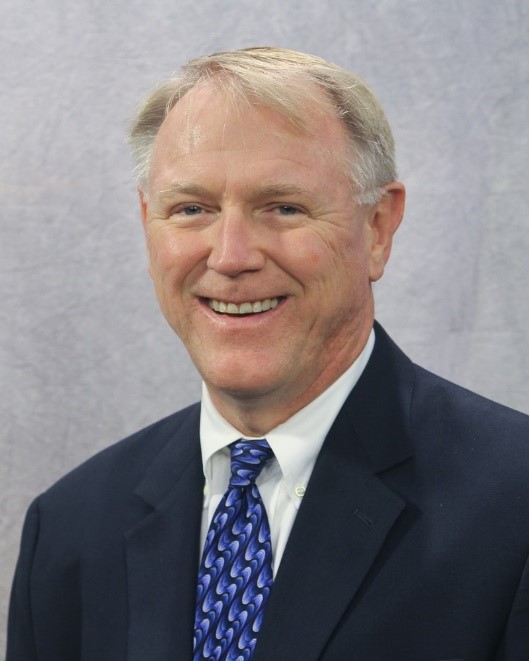
Russ Bywater has over 25 years of experience as a nuclear power engineer in both the federal government and private industry. Russ is a licensed professional engineer (PE), which demonstrates his commitment to the ideals of protecting public health and safety in the engineering profession. In his private industry employment, Russ worked to advance a new nuclear power reactor design through the federal licensing process. As a federal engineer with the US Nuclear Regulatory Commission, Russ performs inspections, event investigations, and other duties as a regulator whose mission is to help ensure the safe operation of nuclear power plants. During a break in his engineering career, Russ fulfilled a long-held desire to enter the teaching profession and became a high school engineering teacher for 5 years at a career and technology education campus in the DFW area. He was selected as the teacher of the year at his campus for the 2017-18 school year. Now back with the federal government as a nuclear power reactor inspector, Russ is continuing his education in the TTU Educational Leadership Policy doctoral program. Russ has earned BS degrees in physics and mathematics from Nebraska Wesleyan University and an MS degree in nuclear engineering from Iowa State University.
Why did you choose TTU's PhD in Educational Policy Leadership for your doctoral program?
My wife and I have a son who is currently a junior electrical engineering major at TTU, so we were already familiar with Tech and its outstanding reputation. I had been thinking for a long time about pursuing a doctoral degree, and one day when I saw a posting pop-up on my social media feed about the Educational Leadership Policy program, I looked into it, liked what it had to offer, (including its online format), and took the plunge!
What experiences in your career or previous education prepared you for a doctoral degree in educational leadership policy?
My engineering career experiences have all revolved around nuclear power policy development, implementation, and enforcement. Although these experiences were in the nuclear power industry, I found many parallels in the education profession while I was teaching. Policy is developed, legislation passed, regulations written, and procedures are implemented in the field. There are many similarities in both professions!
What impact do you expect to have on education policy and leadership? (or more simply, what do you want to accomplish?)
I have interests in two primary focus areas: first, I believe that there needs to be greater access to high-quality STEM education in our schools, especially in engineering; second, I believe that engineering professionals can be a great asset to our youth if more of them pursued second careers as STEM educators. I would like to make a positive impact in both of these areas.
ANGELA CIRINO
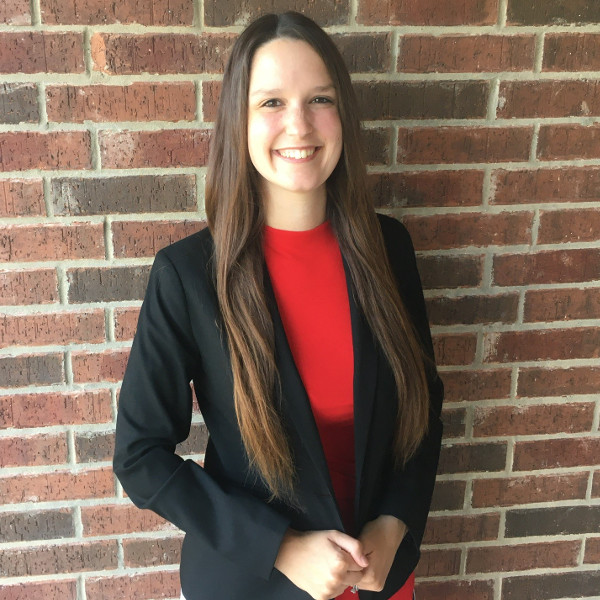
Angie Cirino loves to learn and empower others to reach their potential. She is currently an Assistant Principal in Hurst-Euless-Bedford ISD while pursuing her Ph.D. in Educational Leadership Policy in hopes of making a broader impact on students and teachers. Angie has earned a Bachelor of Music Education, Master of Music Education, and Master of Educational Leadership (with principal certification) from the University of North Texas. Before moving into campus administration, Angie taught K-6 music for six years. Her research interests include inequities in the education system, rectifying the school-to-prison pipeline, teacher recruitment and retention, and the correlation between fine arts and student achievement. Angie lives in Fort Worth, TX with her husband.
Why did you choose TTU's PhD in Educational Policy Leadership for your doctoral program?
As a life-long learner, earning a Ph.D. in Education has always been one of my goals. I chose TTU's program because of its prestige as a research institution and the research-driven curriculum supported in the program. The rigorous, policy-focused, online educational leadership program fits perfectly into my pursuit of growth as a leader and policy expert, while also allowing me the flexibility to continue my career in school leadership.
What experiences in your career or previous education prepared you for a doctoral degree in educational leadership policy?
The time I have spent as an administrator and a teacher has been inspiring, stimulating, joyful, and immensely rewarding. Academically, I have earned an undergraduate and two master's degrees. I have always enjoyed learning and growing in my craft. Through the Ph.D. at TTU, I desire to further my education through doctoral level research and practice to add to my knowledge and skills in educational leadership policy.
What impact do you expect to have on education policy and leadership?
I have a strong passion for the educational system. I am driven to help students and teachers reach their fullest potential, by encouraging their hearts and minds, to help make the community better. Children are the future, and we need to invest in them to achieve a better tomorrow. Leadership is about fostering relationships and creating open communication focused on common goals, values, and passions. I aspire to be an effective school leader who provides a safe, nurturing, highly engaging environment for students to learn, take risks, and grow as citizens. Following my years as an assistant principal and principal at the campus level, the sky is the limit. Some of my professional goals include superintendency and university professorship. Through my leadership roles, I hope to inspire the next generation of educators and leaders.
DEIDRA W. CRAIN
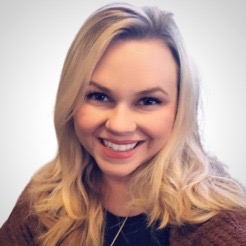
Deidra W. Crain has been an educator for 17 years, serving students from the middle grades to the college level. Her professional experience includes teaching coursework in English Language Arts, Human Development, and Educational Psychology. She has worked as an instructional coach, professional development consultant, high school administrator, and currently Coordinator of Secondary Curriculum and Instruction for Tuscaloosa County Schools in Tuscaloosa, Alabama. She earned her B.S. Ed. from Jacksonville State University as a Faculty Scholar, her M.S. in Human Environmental Science, Interactive Technology from The University of Alabama, and her Ed.S. in Educational Psychology from The University of Alabama. At Texas Tech she has received the Helen Devitt Jones part-time graduate student fellowship. Deidra has designed curriculum and constructed assessment indicators at both the state and national levels, but more locally she enjoys creating strengths-based instructional coaching plans for teachers and facilitating data team cycles. Deidra has presented her work at professional conferences including WIDA, Visible Learning, Southern Regional Education Board, ACT, and the Conference on the First Year Experience. Deidra's areas of research interest include hope theory, instructional access, and culturally responsive teaching, especially as each applies to at-risk students.
Why did you choose TTU's PhD in Educational Policy Leadership for your doctoral program?
I spent several years searching for a Ph.D. program that would position me to operate not only as a researcher with refined scholarly communication skills, but also as practitioner adept in developing and evaluating policy. It was important to me that my professors had experience as public educators and a deep understanding of the challenges facing the students and teachers of this generation. As a district administrator with four children of my own, the ability to take classes at a Research 1 institution with professionals from across the globe, and yet embed my coursework within my own schedule, was an invaluable opportunity.
What experiences in your career or previous education prepared you for a doctoral degree in educational leadership policy?
I started teaching high school English at 22 years old in a small college town. Over time my teaching journey traversed content ranging from middle school reading intervention to advanced placement literature-spanning urban, rural, and suburban schools and the college campus. I was able to observe first-hand the differences in opportunity and access for students, and how students' secondary academic experiences influenced their navigation of career and post-secondary education. These experiences shaped my research interests and helped me identify areas where I believe I can contribute to policy and practice in an effort to support instructional access and develop teacher capacity.
What impact do you expect to have on education policy and leadership?
I have helped school system leaders and classroom teachers analyze multiple layers of student data to inform and guide their strategic planning and instruction, as well as equip classroom teachers with evidence-based strategies to promote equitable, culturally responsive instruction and assessment. I have been able to teach both teachers and students how to construct strengths-based learning portfolios, and I designed and implemented at two high schools an advisory program based on the tenets of hope theory to support students' goals, pathways, and agency thinking. I hope to take these practical experiences and build on them as an aspiring policy author who can lead systemic, sustainable change in education.
ANGELA CREVAR
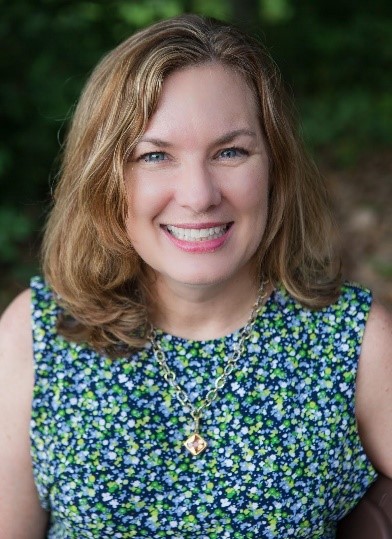
Angela has over 30 years of educational experience in both the public and private sectors in and around the southeast United States. She holds a BS in Early Childhood Education from the University of Georgia, and a Masters in Reading from University of West Georgia. Angela is a Writing Fellow at Kennesaw State University and serves as the principal of a hybrid school while pursuing her PhD. She founded and oversees both the Career Technology and Orton-Gillingham programs at the hybrid school where she serves as principal. Angela also serves as the Family Readiness Liaison for the 4th LogCap Army Reserve Battalion, while her husband serves in the Army Reserves.
Why did you choose TTU's PhD in Educational Policy Leadership for your doctoral program?
TTU's PhD in Education Policy Leadership has a number of desirable components such as a fully online format, an R1 research designation, and full cohort program in the area of education policy and leadership. TTU is a well respected institution with a forward vision of building effective education policies.
What experiences in your career or previous education prepared you for a doctoral degree in educational leadership policy?
I am the first person in my family to graduate with a 4 year college degree. I found education to be the key to open doors to change the trajectory of my future and desire to equip others to do the same. I am now the principal of a hybrid private school and have been creating programs and policies for the last 10 years in this unique format. My ability to accurately interpret policy to inform effective practice is a necessary component of my role as an administrator of a local education authority. Professional development in education has been a tremendous passion of mine, and I look forward to furthering my own professional development in a research driven program.
What impact do you expect to have on education policy and leadership? (or more simply, what do you want to accomplish?)
I look forward to learning how to build effective policy for implementation to bring about positive change in both hybrid and career technology education. I desire to equip students for success in achieving their educational goals through teaching educators how the use of data driven research should shape and inform policy. I also hope to use my degree in the Army Reserve Family and Soldier Readiness programs to shape policy to support military families.
PAUL D'AMORE
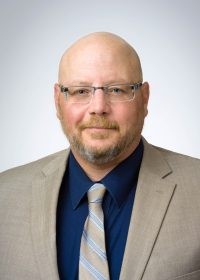
Paul D'Amore is the Director of Education for Foundations Behavioral Health's LifeWorks System. In this position, he is responsible for the oversight of the day to day operations, staffing, supervision of building administrators, curriculum & instruction, accreditation, and performance improvement. He has experience as a teacher and building Principal in grades 3 through 12. Since 2006, he has been an Adjunct Professor at Immaculata University teaching both English and Research courses. Finally, he has served on several Cognia FKA AdvancED® Accreditation Reviews and is certified in their lead evaluator training.
Why did you choose TTU's PhD in Educational Policy Leadership for your doctoral program?
While I was exploring Ph.D. programs, there were three requirements that I focused on: The University offers a Ph.D. online; they are a well-respected educational/research facility; and the faculty is distinguished and well-known in the field. After conducting my research, there were universities who fulfilled some of these requirements, but only Texas Tech met all requirements. The distance learning platform affords me the opportunity to work on the degree while staying close to my wife and children.
What experiences in your career or previous education prepared you for a doctoral degree in educational leadership policy?
Since graduating from Kutztown University in 2001, I have been in the field of education serving as teacher and administrator. Additionally, for the past sixteen years I have enjoyed being an adjunct professor at Immaculata University teaching courses in English and Research. My professional experiences coupled with holding two master's degree has helped prepare me for the Ph.D. program in Educational Leadership Policy at Texas Tech.
What impact do you expect to have on education policy and leadership?
Through the rigorous course work and guidance from the faculty at Texas Tech, I would like to help others focus on the area where policy and practice intersect; specifically, focusing on school violence. After graduation, I would like to combine my background and the knowledge learned through this program to support federal, state, and local policy makers helping them strategize the best ways to address and respond to this issue.
HEATHER DELGADO
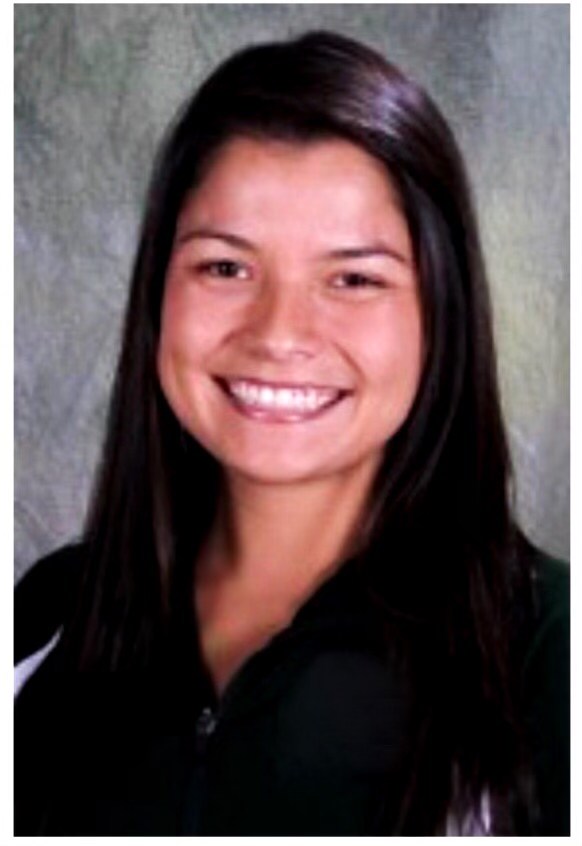
Heather is a secondary education life science, biology, and leadership teacher at Kamaile Academy Public Charter School IN Hawai'i. Previously she worked in the public school system for 1 year in Arizona and 3 years in Hawai'i. She obtained her BA in Psychology and MEd in Secondary Education with a concentration in Science.
Why did you choose TTU's PhD in Educational Policy Leadership for your doctoral program?
Pursuing my PhD in Education Policy Leadership will give me the opportunity to make new connections and understand through research and studies how to create positive change for students and educators.
What experiences in your career or previous education prepared you for a doctoral degree in educational leadership policy?
My education thus far has broadened my skills that I apply through the doctoral program at Texas Tech. The professors, administrators, and colleagues I have had throughout my education have helped build my scholarly writing, research, and leadership skills to be a more well-rounded PhD student.
What impact do you expect to have on education policy and leadership? (or more simply, what do you want to accomplish?)
I hope to apply my research studies to address current policies in education that affect students and teachers. I plan to develop sustainable methods to decrease the teacher turnover in schools.
MONICA C. DIAZ
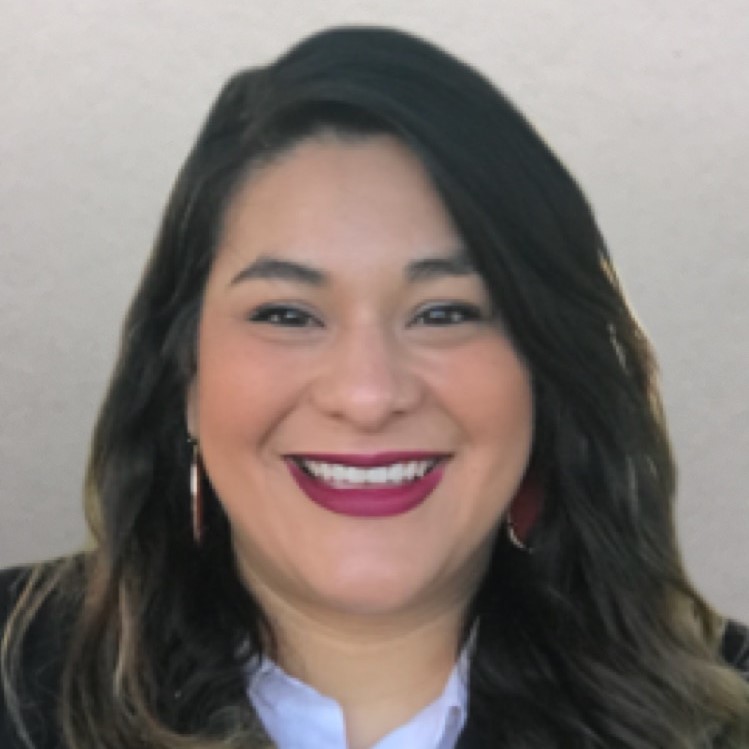
Monica Diaz is the proud daughter of Mexican immigrants who received her B.B.A and M.Ed. at Texas State University. Monica started her career in education at the Center for Migrant Education in San Marcos, Texas, assisting binational students who were going through the same barriers that she faced as a young student. She assisted the states serving migrant and binational students through the College Assistance Migrant Program (CAMP), High School Equivalency Program (HEP), Binational Migrant Education Program, Teacher Exchange Program, Transfer Document Program, and the Free Textbook Distribution Program. Monica continued her education passion and joined the Education Service Center- Region 15 in San Angelo, Texas as their Migrant Out-of-School Youth Specialist and migrant recruiter. She does her best to connect with migrant children and give them the tools necessary to succeed in school and help them make a successful transition to postsecondary education and employment. She also goes out into the fields to find and recruit out-of-school youth and assist them in obtaining their HS diploma or GED. She provides migrant sessions, college resources for undocumented students sessions, poverty trainings and simulations for students, teachers, administrators, counselors, and the community to help them understand the poverty lifestyles in which so many students face today. Monica truly believes that through education, everyone can receive the skills needed to build a successful life, if given the appropriate support. As an at-risk binational student with no hope of being able to attend college, she always sought after a mentor or teacher to guide her in the right direction. She continues to stir the passion of learning to all of her migrant students, out-of-school youth, binational students, GED students, community members, and with her very own children and family members.
Why did you choose TTU's PhD in Educational Policy Leadership for your doctoral program?
I am currently raising three young children, working full-time, teaching a GED Spanish class, and live in a small rural community in Texas with the nearest university that offers a doctoral program being three hours away. I was looking for a program that was completely online so that I could continue to juggle my career and mommy duties. I also had heard great reviews from colleagues who were enrolled in the program who offered to give me support and guidance.
What experiences in your career or previous education prepared you for a doctoral degree in educational leadership policy?
The past twelve years I have been working with migrant students and educators from across the nation and all from different levels in the educational system. I experienced and saw first-hand how the federal program created policies and procedures at the national level and how the policies filtered down into the schools systems across the nation to help children succeed. I loved seeing how policies created helped millions of children nationwide. Currently, I am the Migrant Out-of-School Educational Specialist and the regional migrant recruiter for the Education Service Center in San Angelo, TX, where we serve 43 school districts in our region. We work with TEA and provide technical assistance and guidance to districts to improve the education of all the children in our region. On my free time, I teach a GED Spanish class at my local community resource center for students of all ages to reach a milestone in the life.
What impact do you expect to have on education policy and leadership? (or more simply, what do you want to accomplish?)
Currently, I LOVE to research how the educational policy in the U.S. and in international settings shapes teacher pedagogy and readiness within a comparative framework. Many moons ago, I had a mentor who planted a seed in me to teach on immigrant identities, cultural and gender issues within the classroom, and developing practices of education in economically disadvantaged areas which I hope one day to accomplish. I am also ALWAYS recruiting students, such as my GED and migrant Out-of-School Youth students who have failed in the school system to go back and help make changes for all students to graduate and be college or career ready. I hope to be able to start an educational trend and assist in building a passion in other students who are walking the same path as I am and make positive changes to the educational system to support all student success.
JENNIFER DIXON-FITZNER
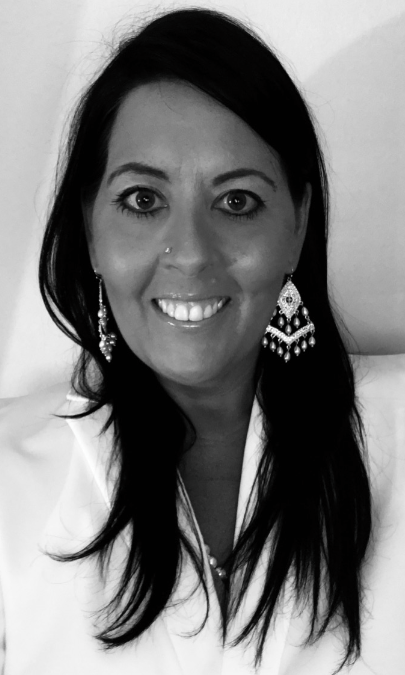
Jennifer Dixon began her career as an educator in 2003. She holds a Professional Educator's Certificate issued by the Florida Department of Education. She certified to teach Art K-12, Business Education 6-12, Exceptional Student Education K-12, and Social Studies 6-12. She has a Master of Education from Eastern New Mexico University. She previously served on the Board of Directors for the Sino-American Bridge for Education and Health (SABEH). For six consecutive summers from 2013-2018 she traveled to China and conducted professional development workshops for teachers, with an emphasis on multi-modal and student-centric pedagogy. Advocating for students with diverse learning styles is a new and unique concept in many parts of the world. Ms. Dixon is particularly interested in educating teachers regarding students with learning disabilities, an issue that has multi-tiered and cross-cultural implications. She is also interested in research and pedagogy to advance learning outcomes for students who are learning English as a second language. Always eager to remind students that "doors can be opened" as they further their education, she works closely with the Student Support Assistance Program to help high school seniors meet all of their graduation requirements. In December 2019 Ms. Dixon was chosen from nearly 10,000 teachers in her district and was named Pasco County's District Teacher of the Year. Ms. Dixon is the co-coordinator for the Inaugural Title I Literacy Project that bridges Gulf High School and Marlowe Elementary School. Additionally, she is the co-coordinator for the Gulf High School Annual Veterans Day Panel Discussion. Recently, she traveled to India where she studied Jainism and teaching for peace and global understanding.
Why did you choose TTU's PhD in Educational Policy Leadership for your doctoral program?
Having taught diverse student populations since 2003, I am eager to learn about educational policy. My goal is to enhance learning opportunities for all students. TTU's online program allows me to continue teaching full time. Synchronous online meetings provide a venue for me to interact with a diverse group of peers.
What experiences in your career or previous education prepared you for a doctoral degree in educational leadership policy?
Since 2003 I've had contact with every grade from K-12 and college. I've taught a variety of subjects ranging from Art for elementary grades K-5, 12th grade Economics and Financial Literacy, Advanced Placement (AP) Psychology, and several other subjects. Effective teachers "wake up" textbook content by "bringing it to life." Empowering students and faculty is a gift to be shared. I've monitored pre-service teachers, have served as a professional learning community (PLC) facilitator, and I've conducted professional development workshops. Learning is ongoing and I'm eager to continue.
JOSEPH ELEFANTE
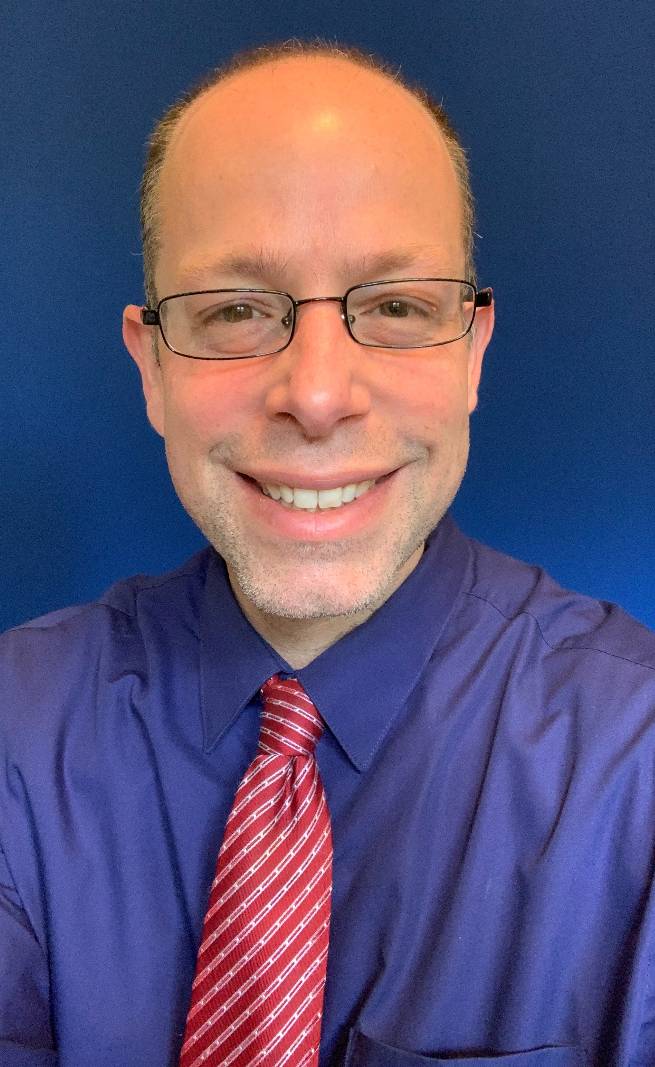
Joe Elefante holds an M.A. in Educational Leadership from Montclair State University and a B.A. in Music Performance from New Jersey City University. His research interests include methods of measuring student success, teacher evaluations, and school quality, assessing arts education in school settings, and measuring outcomes of arts education. In addition to his doctoral studies, Joe is currently the Supervisor of Fine & Performing Arts, Family & Consumer Science, and Business Education for the City of Rahway Public Schools in New Jersey.
Why did you choose TTU's PhD in Educational Policy Leadership for your doctoral program?
My MA in Educational Leadership, although extremely valuable, was geared towards practical preparation for a career in education administration. The option to do an online Ph.D. with a policy focus at a first-rate research university was not an opportunity I was willing to pass up.
What experiences in your career or previous education prepared you for a doctoral degree in educational leadership policy?
My master's program and experience as a public-school administrator have given me a solid foundation in the practical aspects of school leadership. Working through my MA was what energized me to study policy in more depth.
What impact do you expect to have on education policy and leadership? (or more simply, what do you want to accomplish?)
My professional goal is to someday become a school superintendent. I believe school leadership stands to benefit from more people with policy focus. I hope to leverage my position and expertise to affect policy change at the state and federal level in the areas of arts and non-cognitive education. Ultimately, I hope to play a role in the development of holistic measurements of school quality, teacher quality, and student success.
JAZMYN FERGUSON
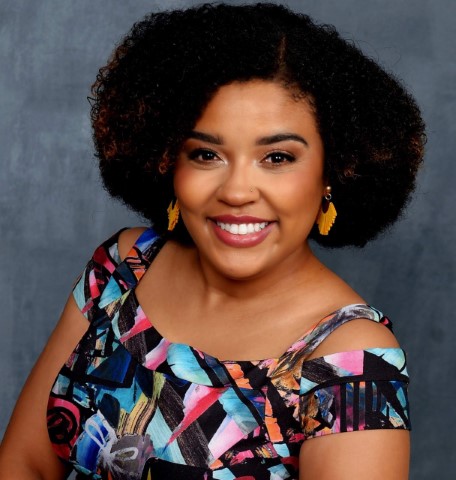
Jazmyn Ferguson (she/her/hers) is a Director of Organizing Strategy at Leadership for Educational Equity, where she is able to stand on the shoulders of the giants that came before her to advance their work, particularly in the education system. She has received her Bachelor of Arts in Psychology from Emory University and her Master of Social Work degree from the University of Southern California. Jazmyn cares deeply about ensuring that the youth are involved in the decisions that affect them through empowering and uplifting their voices. She hopes to continue to serve others through engaging in policy and advocacy work.
Why did you choose TTU's PhD in Educational Policy Leadership for your doctoral program?
I recognized that in order to disrupt the inequities present in the US education system, it is critical that we attack the policies that cause the inequities to persist. I chose to enroll in TTU's PhD in Educational Leadership Policy program because with TTU's top tier research status and dynamic professors, I believed I would receive the skills necessary to explore harmful policies and the support required to shift political conversations to ensure that the voices of our students and educators guide the creation of new policies and practices.
What experiences in your career or previous education prepared you for a doctoral degree in educational leadership policy?
My passion for education started after reading The Miseducation of the Negro by Carter G. Woodson and recognizing that individuals that look like me don't often have the same experiences that I've been privileged to have. After serving as a full-time tutor and mentor in a 4th grade English classroom, it became my duty and purpose to ensure that Black students and families had the supports necessary to tap into the greatness within. My vision for greater propelled me into the field of social work, where I gained the skills to harness the power of others and to uplift communities. In my current work, I am able to uplift the stories and experiences of students to ensure that decisions aren't being made without them. These experiences have enabled me to think critically about educational policy and has equipped me with the tenacity necessary to strive for change.
What impact do you expect to have on education policy and leadership? (or more simply, what do you want to accomplish?)
I hope to impact education policy and leadership through encouraging and inspiring others to listen to and intentionally seek out the voices that are unheard. I want to be at the forefront of change as a policy expert so that Black students across the country can thrive and succeed by being seen and valued. I aim to disrupt the current narrative of academic success for Black students through transforming the policy foundation that allow for disenfranchisement and injustice to exist.
JACOB FISCHER
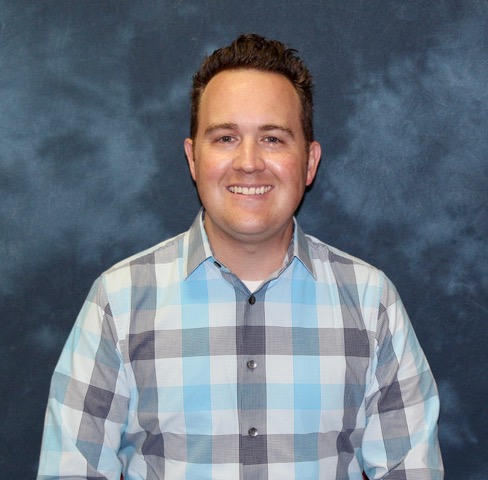
Jacob is an experienced leader in the public education system. He is currently the Director of Special Education for Anna ISD where he oversees special education, Section 504, dyslexia, response to intervention, and homebound services for the district. He holds a bachelor's degree in public relations from Northern Arizona University and a master's degree in special education from the University of North Texas. As a certified educational diagnostician, Jacob has specialized training in assessment and intervention. He is currently working on his PhD in Educational Leadership Policy at Texas Tech University. Jacob believes that, as a leader in public education, his core responsibilities are to serve the unique needs of all students, remove barriers for staff, and serve the goals of the school district and community.
Why did you choose TTU's PhD in Educational Policy Leadership for your doctoral program?
I chose TTU's policy program because I like the emphasis on policy development and implementation in the public education system. Working in a highly political and regulated system, I believe it is important for educational leaders to understand the process of policy to practice in public schools.
What experiences in your career or previous education prepared you for a doctoral degree in educational leadership policy?
I have worked in multiple leadership roles in special programs. I am currently the director of special education for a public school district, so my work often revolves around applying federal and state policies to the practice of serving students with disabilities.
What impact do you expect to have on education policy and leadership? (or more simply, what do you want to accomplish?)
I strive to serve my school district by providing leadership that is grounded in the Structural and Human Resources frames. I believe clear policies, procedures, and expectations are important for functioning within the often ambiguous federal and state guidelines in public education. I also believe it is important for educators to find meaning in their collaborative efforts of serving students with disabilities. I expect to help Texas public school districts continue to develop and refine policy for special programs in public schools.
AMANDA L. GONZALEZ
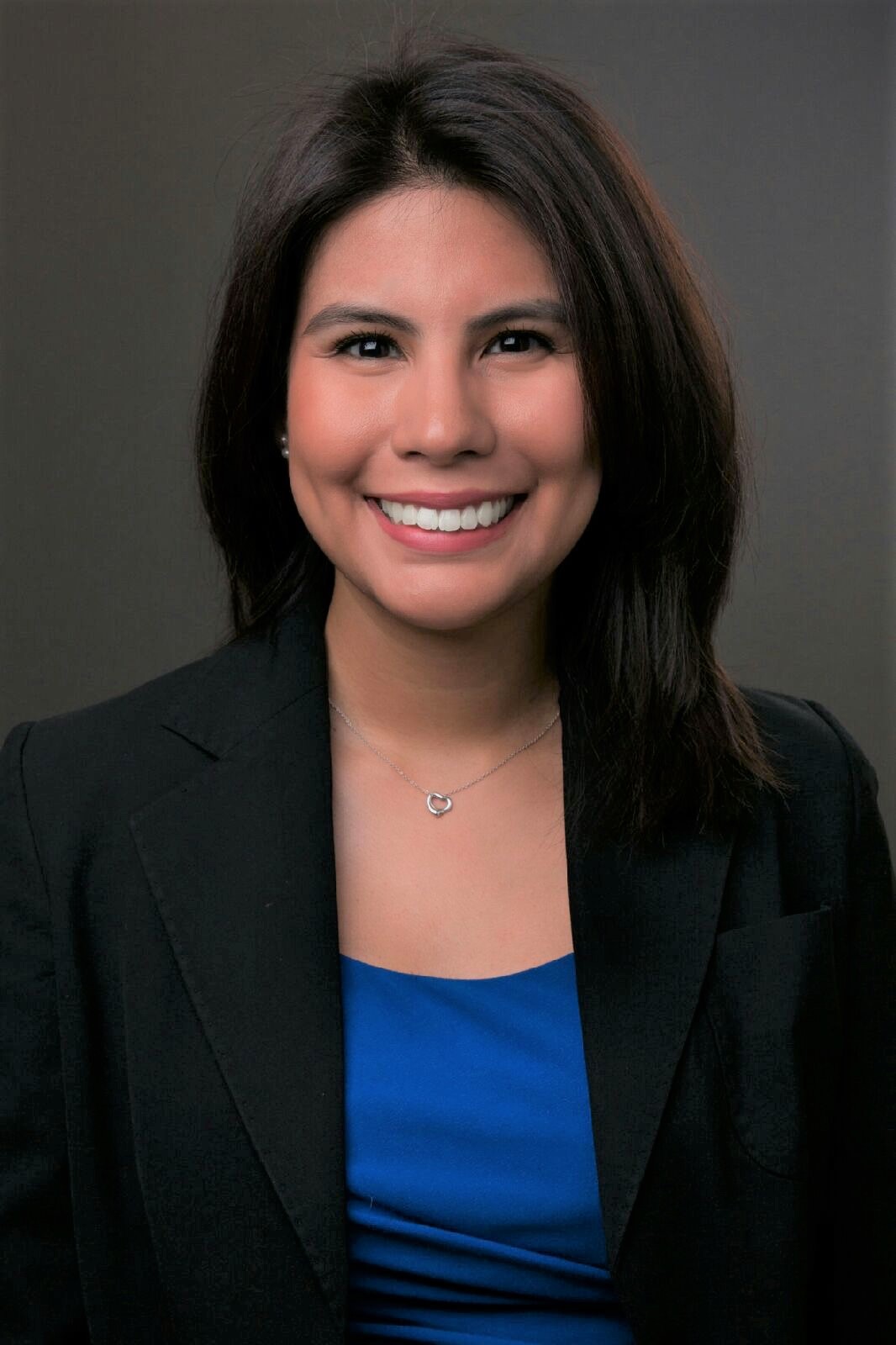
A San Antonio native, Amanda L. Gonzalez holds a BA from Baylor University in Political Science and MA from St. Mary's University in International Relations. Her professional background is extensive in public policy, advocacy, and elections at the state and federal level. In 2016, Ms. Gonzalez was appointed by the Texas Education Agency to serve on the Board of Managers for Edgewood Independent School District. As a Board Manager, she had the opportunity to learn firsthand the inequities plaguing low-income and minority school districts and the uphill battle of not receiving much needed resource allocations and support. She hopes to use her previous experience, education, and current pursuit of her PhD at Texas Tech University to help develop policy solutions that better serve marginalized students to succeed in becoming future leaders.
Why did you choose TTU's PhD in Educational Policy Leadership for your doctoral program?
As a distinguished top tier research institution, Texas Tech's program offers expertise, rigor, and an academic community that challenges me to become a more critically engaged policymaker. The program's online delivery provides me the flexibility to continue to work full-time while still being able to embark on this new educational journey. After completing my first semester this summer, I am certain that I have made the right decision by choosing TTU and look forward to working in collaboration with my cohort and professors to devise long-term educational policy solutions for our state.
What experiences in your career or previous education prepared you for a doctoral degree in educational leadership policy?
During my undergraduate studies, I received two distinguished placements to serve as a policy analyst for both the Texas House of Representatives Committee on Education and Texas Senate Committee on State Affairs. These opportunities elevated my understanding of Texas politics and exposed me to a possible career in public service. I am incredibly grateful to have had the opportunity to sit in roundtable discussions with state agencies, coalitions, and interest groups to formulate innovative solutions to addressing a wide range of issues from public school finance to teacher retirement benefits. Most importantly, these legislative placements helped me identify my passion for public education and inspiration to pursue my PhD to learn more about evidence-based practices that create equitable learning environments for students.
What impact do you expect to have on education policy and leadership?
I hope to quantify my impact on education policy by ensuring that my research and work in the program will create sustainable policies that are centered on resolving the resource divides in Latino and minority school districts throughout the state. My tenacity and resilience to overcome barriers will help guide me into becoming a knowledgeable policymaker in the near future.
JESSICA GOODMAN
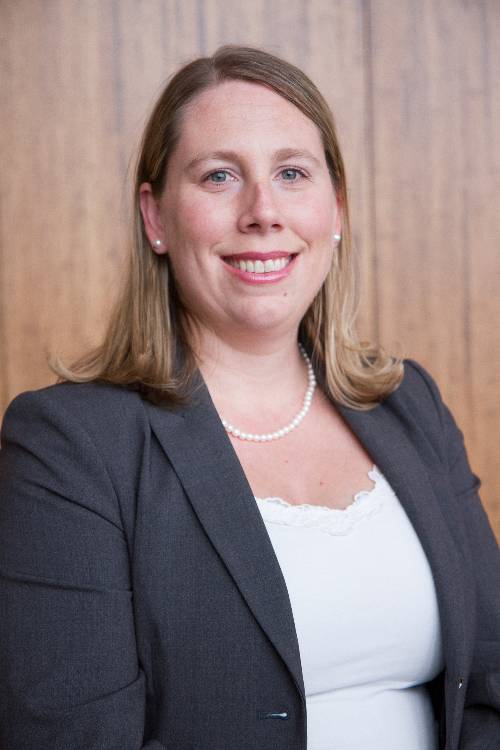
Jessica graduated from Creighton University in Omaha, Nebraska with her doctorate in Physical Therapy. She has been a practicing Physical Therapist for 15+ years and is currently faculty in the Physical Therapist Assistant program at GateWay Community College in Phoenix, Arizona. She is co-founder and administrator of the Healthcare United at GateWay (HUG) clinic, a pro bono student run clinic offering free health care services to the public. She is passionate about service to her community and hopes to continue to improve access for the under served in both education and health care through improved understanding of policy.
Why did you choose TTU's PhD in Educational Policy Leadership for your doctoral program?
I chose the PhD in Educational Policy Leadership for its high rigor, flexibility and because of my interest in policy creation. As a full time faculty member at the community college this program will provide me the opportunity to continue to work full time while using the tools learned in the program to understand and impact my current environment and students.
What experiences in your career or previous education prepared you for a doctoral degree in educational leadership policy?
I have been faculty for over 10 years and have expanded my interests in both faculty development and student success. In this time, I have seen first hand how effective policy can enhance and improve our systems while poorly implemented/written policy can inhibit both faculty and student growth, yet I lacked the tools to make the impact what I sought to change. I'm excited to practically apply what I learn in the program to my current career and community.
What impact do you expect to have on education policy and leadership? (or more simply, what do you want to accomplish?)
I'm hopeful to help impact and improve policy to increase access for under served student populations in health care education.
JOSH HOWARD
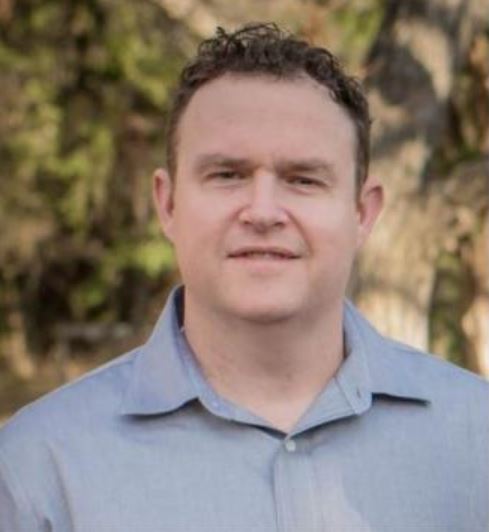
Josh is starting his 10th year in public education and currently serves as a middle school Assistant Principal in the Dallas area. He previously spent 9 years as an engineer and manager for a major corporation. His corporate career did not provide the fulfillment that Josh wanted so he decided to switch careers and become a high school mathematics teacher. Josh taught algebra 1, pre-calculus and computer science classes before moving to campus administration. Josh and his wife have been married for over 20 years and he loves spending time with his wife and son.
Why did you choose TTU's PhD in Educational Policy Leadership for your doctoral program?
Texas Tech University is a well-respected Tier One Research University with excellent academic programs. I grew up as a Texas Tech fan and I am excited to be a doctoral student at a university that I have always admired. The PhD in Educational Policy Leadership is unique due to the policy focus. My goal in life is to positively affect as many people as I can during my lifetime. A PhD in Educational Policy Leadership from Texas Tech University will help me achieve that goal.
What experiences in your career or previous education prepared you for a doctoral degree in educational leadership policy?
I have a B.S. degree in engineering and an M.B.A. I also have 9 years of corporate experience and 9 years of experience serving in public education. The diversity of my educational and professional experience helps me bring a unique and well-rounded perspective to the PhD program. I interact with education policy daily as an assistant principal that I can relate to everything I am learning in the Educational Policy Leadership PhD program at Texas Tech.
What impact do you expect to have on education policy and leadership? (or more simply, what do you want to accomplish?)
I want to help shape education policy that will provide positive outcomes for students and improve the public education experience for all stakeholders. I am currently focused on research that can help improve middle school mathematics acceleration policies in Texas.
SALLY INGLES
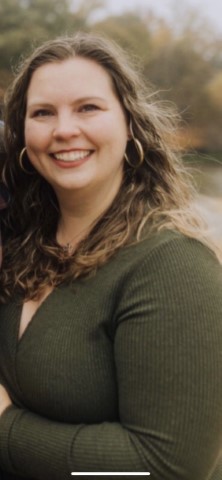
Sally Ingles was born and raised in Greenville, SC and was instilled with a love of learning from a young age. After teaching high school for 7 years she decided to make the switch to the nonprofit world and an organization where she could make an impact on a larger scale. She is currently Director of Marketing and Communications at South Carolina Legal Services, a nonprofit law firm providing free legal representation to low income South Carolinians. She has received her Bachelor of Science in Secondary Social Studies Education, as well as a Masters of Business Administration, both from Clemson University.
Why did you choose TTU's PhD in Educational Policy Leadership for your doctoral program?
I am a lifelong learner who is always looking for a new challenge. After getting my MBA from Clemson, I was looking for a way to combine my undergrad degree and years of experience in education to make an impact. I also wanted to obtain a degree that would allow me to be marketable outside of a traditional school setting and felt that knowledge of the policy process was a crucial understanding for many sectors. TTU's PhD in Educational Policy Leadership provided me an avenue to combine my degrees, knowledge, and experience. Additionally, the program was affordable and flexible due to its online nature. I've enjoyed being able to connect with other scholars outside of South Carolina and learn about policies and experiences in other states.
What experiences in your career or previous education prepared you for a doctoral degree in educational leadership policy?
Choosing to get my MBA was one of my most challenging educational experiences as I did not have a formal business education. However, this prepared me for the challenges of pursuing a doctoral degree as it pushed me to tackle new learning and find a way to stay on par with my classmates who had more knowledge and direct experience than me. This helped me academically prepare for the challenges of a PhD program. Teaching for 7 years motivated me to want to make a difference in education and has provided me a lot of experience to draw on while working through this program.
What impact do you expect to have on education policy and leadership? (or more simply, what do you want to accomplish?)
My goal is to show the value of career education and how it positively impacts students. Teaching in a rural area, I saw many students who did not feel a four-year college was a good fit for them after high school. My district had a strong career center, and I witnessed its positive impact on my students. I think it is important for education to facilitate personal growth in students and cultivate their individual knowledge and skills. Career education helps students who may struggle in a traditional classroom setting shine through other competencies.
LEVI JOHNSON
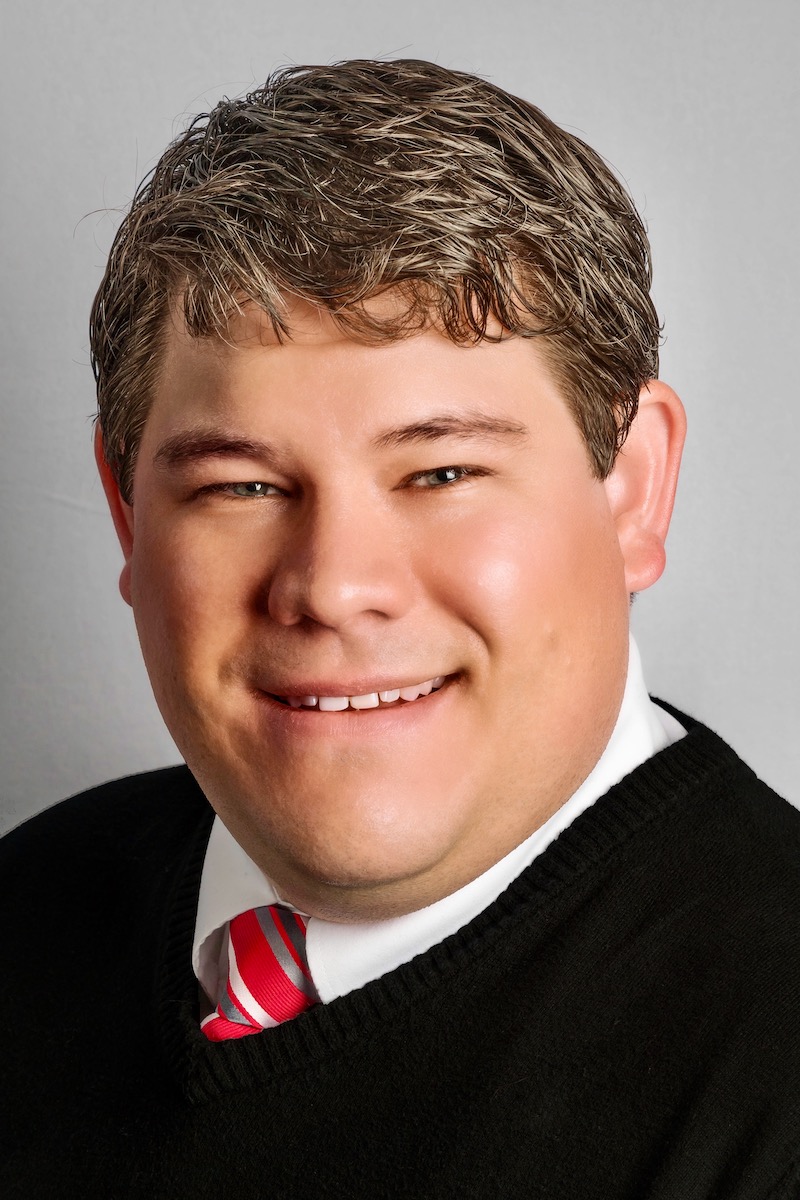
Levi is the Director of the TTU Center for Transformative Undergraduate Experiences. He holds B.A. and M.S. degrees in mathematics and has more than 10 years of experience connecting Texas PK-12 schools with higher education through a range of STEM outreach and community-engagement initiatives. He is passionate about leveraging the power of big data to make smarter and more impactful education policy. Away from work and his studies, he enjoys spending time with his wife, two young sons, and their nontraditional lapdog (a Saint Bernard).
Why did you choose TTU's PhD in Educational Policy Leadership for your doctoral program?
I am passionate about leveraging large, rich collections of education data to inform smart policy development. The Educational Leadership Policy Ph.D. offers the unique opportunity to develop my skills as a researcher with consistent entry points for applying these skills to real education policy issues. As a full-time professional, the part-time and online facets of the program are also essential.
What experiences in your career or previous education prepared you for a doctoral degree in educational leadership policy?
I have worked in various administrative staff roles in higher education for the last decade. Beginning in 2015, I helped to establish the Estacado Early College High School—the first program of its kind where a Texas Tier 1 Research University serves as the sole higher education partner for a comprehensive dual credit program that offers students the opportunity to graduate high school with up to 60 hours of college credit from TTU. Aligning state and federal policies governing high schools and institutions of higher education has been a fascinating introduction to education policy work.
What impact do you expect to have on education policy and leadership? (or more simply, what do you want to accomplish?)
Thanks to wonderful opportunities and support from this program, I am engaged in research that I believe will help shape future policy work enhancing higher education access for minority and at-risk students. I am also contributing to projects that will inform the preparation of future teachers and how we look at their impact in high needs schools.
TERESA LANSFORD
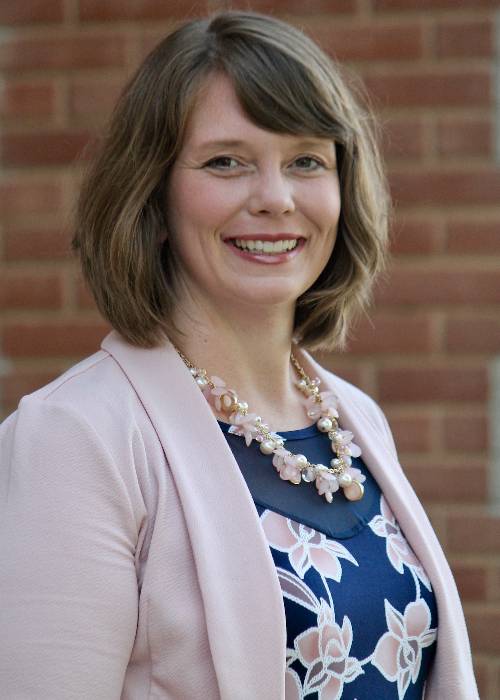
Teresa Lansford is a National Board Certified Teacher with an MLIS from the University of Oklahoma and 16 years of experience in education in Norman Public Schools. She was Norman Public School's 2018 Teacher of the Year and has been the recipient of the OLA Technology in Education Award, Oklahoma Central Regional SKIE Award, the OTA Teacher of the Year: Making IT Happen Award, the OKSL Polly Clarke Award, and was a finalist for the 2019 Oklahoma state teacher of the year. Teresa Lansford is passionate about letting students make and create, and developed a thriving Maker area at her school site. She has served as an adjunct intern supervisor for the University of Central Oklahoma and an instructional designer at the University of Oklahoma's K20 Center. She presents at the local, state, and national level on best practices in both integrating technology and using data to drive practice. Twitter: @lansfordslines
Why did you choose TTU's PhD in Educational Policy Leadership for your doctoral program?
Texas Tech provides the flexibility I needed as a working mother while allowing me to reach my goals. I have a passion for successfully enacting policy into practice, encouraging and coaching teachers, and innovating to push education forward. Texas Tech impressed me with its program and focus on policy in leadership, which has always inspired me more than roles in administration or principalship.
What experiences in your career or previous education prepared you for a doctoral degree in educational leadership policy?
Recently I took part in an Institute of Museum and Library Services (IMLS) grant awarded to our district to study the results of integrating Making into the inquiry process. This was a three year grant that looked at K-12 learners. As part of this process, I collaborated with teachers to design units of study that integrated Making and inquiry which we then compared in terms of learner outcomes to units that focused on inquiry alone. Taking part in this grant, along with sharing our recommendations for best practices as a result of the grant, solidified a desire I have always had to equip myself as an educator to make the greatest possible impact on learners. I loved that the work we did had an impact beyond our schools or district, and felt like policy studies would equip me to continue to make a significant impact on education.
What impact do you expect to have on education policy and leadership?
I would love to continue to study the impact Makerspaces can have on learner outcomes. Makerspaces are in their adolescence when it comes to their integration into the public school setting, and for some districts Making is still in its infancy. I feel that there may be opportunities we are missing for using Makerspaces to enhance and improve education. I would like to go beyond the work I participated in as part of the IMLS grant and study the effects of Makerspaces on learner outcomes across a variety of educational settings and curricular areas. Much of the work we did after our IMLS grant was to determine best practices for teacher training and equipping teachers to be coaches who encouraged grit and a growth mindsets in learners. Taking a complex study and transferring those results into action for successful classroom learning is an area I loved to explore as well, and I see opportunities to grow in this area as well during my time at Texas Tech.
CURTIS LARSEN
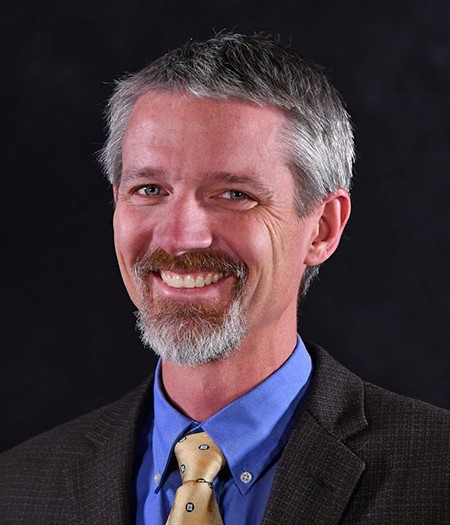
Curt Larsen has more than 25 years of experience in Higher Ed, at the University of Strathclyde in Glasgow, Scotland; at the University of Utah and Salt Lake Community College, both in Salt Lake City, Utah. He holds BA/BS degrees in English and Political Science with an emphasis in International Relations, and an MPA from the University of Utah, where we was awarded the Michael O. Leavitt Founders Scholarship for academic performance and community engagement. Curt currently serves as the Assistant Vice President for Student Services at Salt Lake Community College and is on sabbatical for the 2020-21 year while pursuing his PhD.
Why did you choose TTU's PhD in Educational Policy Leadership for your doctoral program?
With my previous degrees all from the UofU, I couldn't be an academic inbred and get my doctorate degree there as well. After researching online only Research I programs fairly extensively, I applied to Texas Tech in the spring of 2019. Speaking with Dr. Wiseman convinced me the program would be a good fit; I was attracted to the cohort model. I have thoroughly enjoyed getting to know several of you and look forward to working more closely with y'all as we progress.
What experiences in your career or previous education prepared you for a doctoral degree in educational leadership policy?
I have long believed that education is the most powerful force for change. My background in after-school programming with the Salt Lake City School District, at the Lowell Bennion Community Service Center at the U of U, and as Director of Student Life and Leadership at SLCC have given me much in working towards stronger communities and seeing the value in needed policy changes to advance the communities I serve.
What impact do you expect to have on education policy and leadership? (or more simply, what do you want to accomplish?)
In the Qualitative Research methods course I just completed (yesterday!) I proposed a case study of the organizational structure for Higher Education in Utah, which just merged two systems into one. I increasingly see the need for stronger policy recommendations from less partisan actors whose positions are backed empirically, not just emotionally or fiscally motivated.
CLAUDIA LOZANO
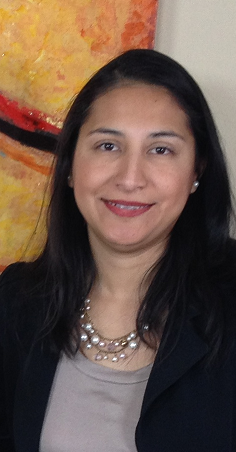
Claudia Lozano has worked in the public health sector for 15 years with government agencies and universities. She graduated in 2009 from the University of Texas at El Paso with a Master's in Public Health. Her areas of expertise include clinical research, border health, and cancer prevention. She has authored four publications with a focus on community-based participatory research. The results from this research have guided her implementation of interventions to increase access to health services for the low-income uninsured population. Currently, she serves as the manager of the Medicaid Waiver program with the City of El Paso health department. The program she implemented has served 30,000 participants who have access to medical care services and other preventive health screenings. In July 2018, this program was recognized as a model practice by the National Association of County and City Health Officials (NACCHO).
Why did you choose TTU's PhD in Educational Policy Leadership for your doctoral program?
The focus of this program on policy and leadership is unique because of the holistic approach required to enhance the educational structure. This motivates students to appreciate coursework that leads to advocacy and better practice.
What experiences in your career or previous education prepared you for a doctoral degree in educational leadership policy?
As a health educator, one of the principles is to serve as a resource person for overall wellness and quality health care. With this role in mind, it is important to improve health literacy and policies that enable community mobilization. Thus, higher education in this field will empower me towards this outcome.
What impact do you expect to have on education policy and leadership? (or more simply, what do you want to accomplish?)
My expectations on education policy and leadership are to create a bridge between the health and education sectors that will create a mechanism to maximize resources and expand health services for the population mutually served.
ANNETTE MACIAS

Annette Macias has over 23 years of experience in Texas K-12 public education. Having earned a bachelor's degree in Spanish and a master's degree in special education-educational diagnostician, she has served in the roles of classroom teacher, educational diagnostician, assistant principal, principal, director and executive director. Annette was encouraged to pursue a certificate in educational leadership by her mentor Wendy Hines leading to her roles as a campus and district level administrator. Annette is currently serving as the Executive Director of Accountability, Assessment and School Improvement for the Ector County Independent School District.
Why did you choose TTU's PhD in Educational Policy Leadership for your doctoral program?
I chose TTU's Ph.D. In Educational Policy Leadership program because it is classified as a Research 1 institution and the programs focus on education policy. The doctoral program allows me to continue my journey in understanding the inequities in education.
What experiences in your career or previous education prepared you for a doctoral degree in educational leadership policy?
My experience in teaching low socioeconomic English learners and later students receiving special education services provided me with a glimpse into the inequities of our current public education system. As I continue this journey through public education, I have learned that education policy can both influence and directly impact inequities in education. Having earned a Bachelor's degree in Spanish with a minor in multicultural education, I gained an understanding of the educational inequities that English learners face. While completing a Master's degree in Special Education, I learned that even greater inequities existed. The finding of racial bias in special education has become a trend and widespread problem for the education system in which minority students are disproportionately being identified and placed in special education classes.
What impact do you expect to have on education policy and leadership? (or more simply, what do you want to accomplish?)
Ultimately, I aspire to become a leader of education research projects in order to transform education policy.
MUWAFIQ MANHIL
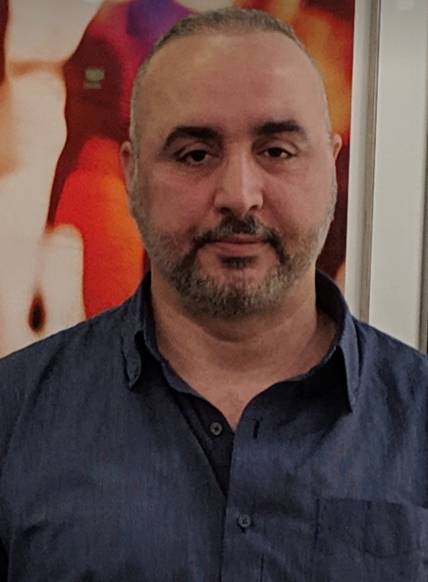
Muwafiq is originally from Iraq and currently living in Glen Allen, VA. He arrived in the US as the University in Exile Scholar to The New School in NY -2008 due to his work with the US Army and USAID in Iraq (2003-2008). He received his bachelor's degree in English Language, major in English Literature from the University of Baghdad. In the US, he earned his two master's degrees, one in International Affairs (Media and Culture) from The New School in NYC and the second M.Ed. in Education (Literacy, Cultural, and Langue Education - IST) from Indiana University Bloomington. He has been working as a senior research analyst and cultural adviser (MENA) region for a company in NYC since 2008. He worked as a liaison officer, a communication officer, a reform project implementation specialist, a cultural adviser, and a project manager in the Middle East with USAID.
Why did you choose TTU's Ph.D. in Educational Policy Leadership for your doctoral program?
Texas Tech University is an excellent opportunity for students like me who have diverse backgrounds and are looking for a program of studies that straightens his skills and experiences. Also, the quality of education & research is the primary reason to join TTU. Each year Texas tech is climbing up in rankings in terms of research, quality of knowledge.
What experiences in your career or previous education prepared you for a doctoral degree in educational leadership policy?
My experience as a former TESOL instructor and intercultural communication trainer
and international relations expert in the Middle East affairs made me think of putting
all those skills in one basket and attempting to be an educational policy advocate
in the Middle East.
Being a researcher in the Middle East affairs also helped me to envision educational
leadership and policy changes to happen soon in the schooling system of the Middle
East.
What impact do you expect to have on education policy and leadership?
Working with international organizations on reform projects with USAID has helped me to shape a perspective of educational policies in general. I have witnessed several events in which missing the appropriate plans ruined learning environments in Iraq and other middle eastern countries. My learning objective is to make an impact in the field of education through policies that could be utilized to nurturing diverse teachers and learners environments that could use civic education principles as a major factor to improve educational systems, especially in multi-ethnic and multi-religious communities.
KRISTIN E MANSELL
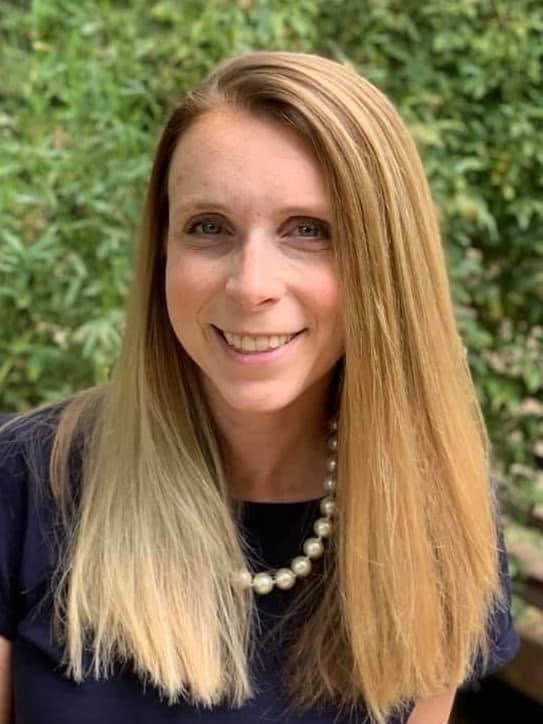
Kristin Mansell is a National Board Certified Teacher with 17 years experience teaching in the public school system as a science teacher in grades seven through twelve. She holds a BA in Classical Languages with an emphasis in Ancient Latin and Greek from the University of Alabama and an M.Ed. in Secondary Science Education from the University of Alabama in Birmingham. Kristin currently teaches seventh grade science in St. George, Utah where she is a member of her school's vision team and a department lead. Kristin is passionate about increasing teacher efficacy by mentoring science teachers within her school district and those pursuing National Board Certification. Outside of the classroom, Kristin enjoys traveling and exploring nature with her husband and their two children.
Why did you choose TTU's PhD in Educational Policy Leadership for your doctoral program?
Texas Tech's online format allows flexibility for me to spend time with my family, continue to work, and be an active member of my community. While there are other online PhD programs around the nation, Texas Tech is highly regarded due to its tier one research designation. There is also no other program like this with an emphasis in not only leadership but policy to practice as well. By studying under the professors in this program and others at Texas Tech, I know that I am receiving an education with a rich research and theory base.
What experiences in your career or previous education prepared you for a doctoral degree in educational leadership policy?
As a veteran teacher, I have had many leadership roles throughout my tenure ranging from science department head to a member of my school's vision team. Over the past few years, I have had the opportunity to work with state department leaders with STEM education and dyslexia policy. Moreover, I have been fortunate to converse on several occasions with my state legislatures on STEM topics and the need for National Board Certification and stipends. Being an integral part of the policy team at both the district and state level led me to pursue a new found passion in educational leadership policy.
What impact do you expect to have on education policy and leadership?
My current interests and expected impact revolve around increasing teacher and student efficacy through grading reform and robust professional learning communities in the K-12 sector.
SARAH MCCASLIN
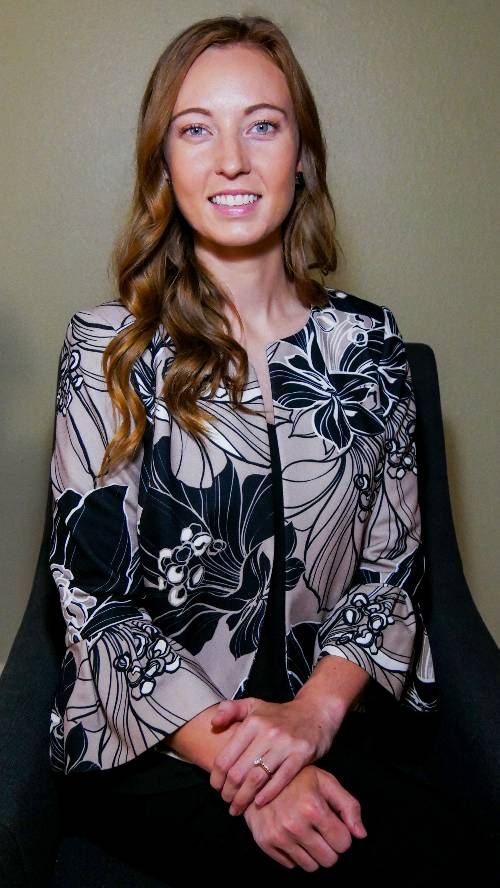
Sarah has always known she wants to be a teacher. After graduating college, she began teaching elementary and middle school in Muleshoe ISD and Austin ISD. After five years in the public-school setting, she took a position at the Texas Education Agency as the Texas Tutoring Grant Specialist where she serves Education Service Centers and school districts across the state in their high impact tutoring efforts. Her role also encompasses grant and vendor management, program implementation support, and policy analysis. Sarah received her B.S. in History from the University of Mary Hardin-Baylor and her M.Ed. in Curriculum Instruction from Texas Tech University. She holds Texas teaching certifications in 4-8 Core subjects, Gifted and Talented, and English as a Second Language. In addition to teaching, Sarah has also completed policy internships with the Texas Tribune, Belton ISD, and the Education Policy Fellowship Program. Sarah and her husband love to travel, have one biological daughter and have also grown their family through foster care!
Why did you choose TTU's PhD in Educational Policy Leadership for your doctoral program?
Since undergrad, I knew I wanted to pursue a career in educational policy. I chose Texas Tech's program because it would allow me to continue teaching full-time while developing the skill set I will need in my future policy endeavors. I also appreciate the program's emphasis on research and policy implementation, as well as the faculty's diverse backgrounds.
What experiences in your career or previous education prepared you for a doctoral degree in educational leadership policy?
Teaching is a research-based job. It is a constant process of determining best practice and finding out what works well for students. This reality has most prepared me for my doctoral career. Previous graduate work and field experience in policy has also helped lay the groundwork for my continued academic studies.
What impact do you expect to have on education policy and leadership?
When I became interested in education policy, I knew that I needed to first pursue a career in education. I wanted to make sure that I had the classroom experience to back my policy pursuits. My time in the classroom has been both rewarding and eye opening. Working in Title I schools has shed light on the many inequalities that exist for students. My goal, regardless of the specific policy path that I end up on, is to contribute to a greater sense of justice in the Texas public school system, especially for English Language Learners and migrant students.
JESSICA ENDERLIN NADZAM
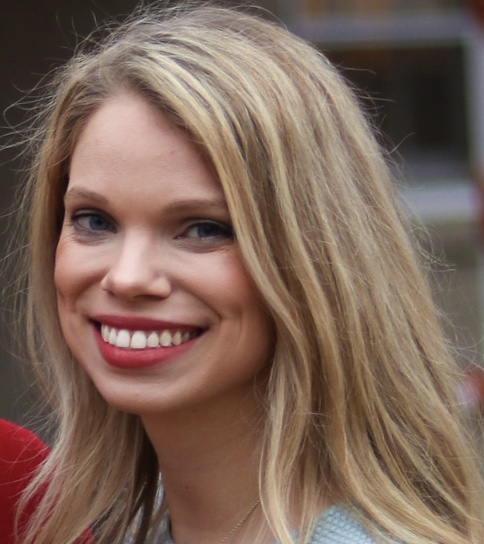
Jessica Enderlin Nadzam is an aspiring policy practitioner with a passion for educational access across the country. Grounded in the belief that transformational teachers are key to student empowerment and the key to a healthier, more productive society, Jessica focuses her studies on student health, teacher workforce policy, and federal education policy. Currently in her sixth year as a secondary science teacher, Jessica has enhanced her education experience with a Master's degree in Educational Studies from the Johns Hopkins University, an Educational Specialist degree in Educational Leadership. With her original bachelor's degree in biology from Lyon College, Jessica incorporates a meaningful understanding of life science into all of her curriculum to promote healthy living, healthy curiosity, and an understanding of life around us. She currently works in rural Arkansas while finishing her Ph. D., and at its conclusion hopes to enter a career that contributes to educational access by creating healthier, more inclusive environments for all students. For her work as a teacher she was awarded a Transformational Impact Distinction from Johns Hopkins University, and she was awarded the J.T. and Margaret Talkington Graduate Fellowship upon her admission to Texas Tech University.
Why did you choose TTU's PhD in Educational Policy Leadership for your doctoral program?
I chose Texas Tech's program for two reasons: relevant content to prepare me to meet the goals of my career, and the opportunity to do scholarly research while working remotely. From discussions with the professors before I applied to the quality of the research coming from the College of Education, I knew that I would get relevant, engaging coursework with critical feedback that would build up my skills as a policy practitioner. I also found out I could conduct research even when enrolled as a distance student, which would give me significant experience should I chose to enter academia or another organization tasked with research and information distribution.
What experiences in your career or previous education prepared you for a doctoral degree in educational leadership policy?
The most relevant experience to this degree is my ability to read and write. A doctoral degree means buying all the textbooks and reading them all cover to cover, then compiling my thoughts into something meaningful, succinct, and noteworthy papers. I was lucky enough to have a great background in this sort of writing through my previous education, but writing every day has been key to ensuring I keep the skill sharp. Additionally, I have to keep my experiences as an educator at the forefront of my mind whenever I think through a scenario or try to draft a solution. As an educator, I have a specific lens that acknowledges and prioritizes the needs and experiences of my students, and whenever I do transition out of the classroom, I want to make sure I keep them grounded in my intentions and motivations.
What impact do you expect to have on education policy and leadership? (or more simply, what do you want to accomplish?)
My specific goals for education policy are focused on student health, teacher workforce policy, and federal education policy. As a biology major in my undergrad, I originally intended to enter the public health field. However, after a little experience I realized that public health started with our nation's youngest- kids - and I began to think that impacting kids could be much more direct if I saw them every day. I began teaching as a biology teacher with the intent of sharing healthy habits and teaching students how to interact with the world around them, but my understanding quickly shifted as I experienced one of the poorest schools in the country, and my passion grew into outrage as the discrepancies in their resources and services. While I still highly value the physical, social, and emotional health of students and plan to devote significant time to it, I now primarily focus on teacher workforce policy as a mechanism to promote transformational teaching practices that will create more equitable schools.
ADRIENNE NENOW

Adrienne has worked in fundraising for higher education for over 6 years with her most recent role being Director, International Development. She received her M.Ed from Lehigh University in Comparative and International Education. During that time, she participated in a research project with Caring for Cambodia and also served two years as a United Nations Youth Representative. Adrienne was able to present at two UN Conferences, one in South Korea on partnerships between academia and NGOs and the other was in New York at the Commission of the Status of Women conference. Her research interests are academia's important role in building the knowledge economy through government and industry partnerships, specifically in international technology transfer. She also studied Japanese and is hoping to take the JLPT test (starting with N5 level) next year.
Why did you choose TTU's PhD in Educational Policy Leadership for your doctoral program?
The mission of the program and content that is covered was key for me to further explore the areas I was interested in pursuing. Another key factor was the flexibility of the program in being able to take classes online, since I travel a lot for my job. The format of the program allows an enriching delivery of material and enables you to feel connected to your classmates, as well as the professors.
What experiences in your career or previous education prepared you for a doctoral degree in educational leadership policy?
Fundraising has taught me to sharpen both my research and writing skills, especially during the times I've had to write grants, research foundations, and research international policies on philanthropy. My M.Ed. was the first experience I had with working full-time and taking courses, plus being a youth rep for the UN on top of everything. That experience taught me very quickly how to multi-task, manage stress, and how important it was to be passionate about what you were researching because it truly makes a difference in your dedication to the subject mater (and staying sane).
What impact do you expect to have on education policy and leadership? (or more simply, what do you want to accomplish?)
I've always been fascinated by international partnerships, especially now during the Sustainable Development Goal era when partnerships are so crucial to sharing resources. Higher education institutions have been at the crux of many inventions and discoveries and partnerships have helped disseminate that knowledge for public good. I'm hoping my research can make a difference for cross-border collaborations in education between developing and developed
CHERISE NICHOLS
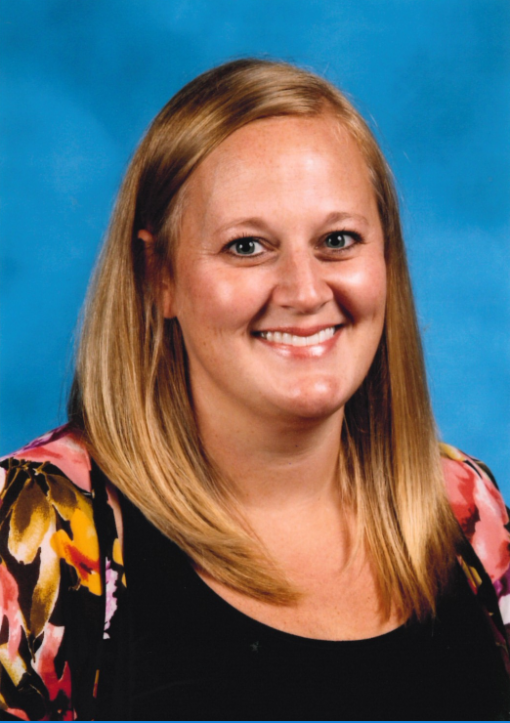
Cherise Nichols has over 10 years of experience in public education. Prior to pursuing a career in Education, she obtained her Bachelor's degree in Psychology. Working with people and students has always been a passion of hers. In her educational career, she began as a middle school English teacher which led to the pursuance of a master's degree in Library Science from the University of North Texas. Through her many years as a librarian at Elementary, Middle, and High School campuses she began to increase her influence and leadership. This led her to pursue her Principal's Certification and will lead her to a future role in campus administration. Cherise currently serves as the Secondary Lead Librarian for FISD as she pursues her Ph.D. at Texas Tech University in Educational Policy Leadership.
Why did you choose TTU's PhD in Educational Policy Leadership for your doctoral program?
I chose Texas Tech's Ph.D. Educational Policy Program because it is a “Carnegie Tier One” school that focuses not only on educational policy but also on the practice of educational policy. I also chose this program because it is a 100% online Ph.D. program that I can do as I pursue the other things in my life as well. As I move forward through my career, I want my Ph.D. program to further educate me with information that will be useful as I move progress in my career. I am planning to move towards an administrative role within my district and this will continue to build my knowledge base and give me a unique perspective in education to help me in this endeavor. I have always been passionate about creating positive change in public education to better the situation for my children and all children in public education.
What experiences in your career or previous education prepared you for a doctoral degree in educational leadership policy?
I received my bachelor's degree in Psychology from Southern Methodist University, obtained my Master's degree in Library Science from the University of North Texas, and my principal certification through Lamar University. I have steadily grown in leadership and influence as I moved from classroom teacher to an elementary librarian, middle school librarian, and now high school and public city librarian where I serve 1615 students and 100 teachers and the city of Forney. I am now in a leadership role over secondary librarians in my district and I also frequently substitute as an administrator on my campus. My goal has been to steadily increase my influence and impact each year. Every step of the way has prepared me for this opportunity to pursue my doctoral degree. I enjoy learning, being challenged in my paradigms, and I am constantly striving to make a positive impact on those around me.
What impact do you expect to have on education policy and leadership? (or more simply, what do you want to accomplish?)
I plan to have a substantial impact on education policy and leadership. I am realizing there are many different opportunities and avenues to take within education to make positive change. I am working on narrowing down where I believe I can be most effective. I have always had a passion for leading people to become what they dream to be in life. My background studies in psychology have always led me to be interested in people. I plan to work towards refining my skills and putting policies in place to develop leaders around me. I want to be able to teach and lead others in leadership positions to become better and more influential leaders. As I am able to grow and move in the direction of an administration role, I want to change policy to impact administrators, teachers, and students.
KATHLEEN O'MARA
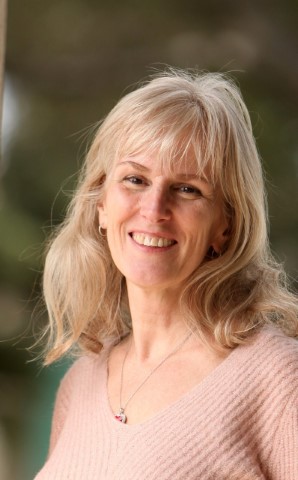
Kate is a PhD student focused on Educational Leadership Policy related to digital learning. She is interested in the relationship of education systems worldwide; particularly, how leadership decisions affect digital education frameworks and the fiscal accountability to streamline asset distribution for predictable student outcomes. Kate embraces lifelong learning. Before venturing into education, she co-owned construction company specializing in historic renovation & residential building, serving property owners in six states. She holds a California B-General Building Contractor license. While raising a family, she graduated magna cum laude from the University of New Mexico with a B.A. in History, and a minor in Women's Studies. She has two California secondary single subject credentials in English & Social Science having completed the California State University, Long Beach teaching credential program with honors. She completed the California Induction Program, clearing both credentials with a BCLAD – Bilingual authorization. Kate graduated summa cum laude from California State University, Fullerton with a M.S. in Instructional Design and Technology where she developed a digital learning prototype to enhance reading comprehension skills for English learners. She worked for 5 years in Title 1 schools as a classroom teacher. She taught Construction Contracts & Law as an adjunct professor at a community college. Currently, she serves as a supervising teacher in a hybrid-independent study program at an alternative school in Los Angeles and explores the many dimensions of Educational Leadership Policy at Texas Tech University.
Why did you choose TTU's PhD in Educational Policy Leadership for your doctoral program?
TTU's PhD in Educational Leadership Policy faculty offer a diverse range of expertise providing insight into governmental education systems, the impact of economic policy, and managing systemic change.
What experiences in your career or previous education prepared you for a doctoral degree in educational leadership policy?
As a builder, I gained the knowledge to understand the skills and processes necessary to build or renovate a structure. So, when I transitioned into working as a classroom teacher, I knew there were processes not imagined or not implemented to solve the iniquities plaguing so many schools. In building, it's necessary to coordinate materials and personnel within a timeframe to create a final product that is functional, comfortable, and energy efficient with an EnergyStar rating. The education training at CSULB and CSUF prompts me to believe that we should be able to do the same in education. Granted people aren't buildings, but in the thirteen compulsory school years, given the 21st century technology, students should become knowledgeable on a variety of academic topics, have multiple career and extra-curricular skills and graduate with stellar opportunities that support themselves, their families, and their communities.
What impact do you expect to have on education policy and leadership? (or more simply, what do you want to accomplish?)
My intent is to contribute to the academic literature that examines the impact of educational leadership decisions in resource allocation and to develop fiscal accountability systems, so government policy may target and streamline asset distribution to enhance student digital learning globally.
RENEE OREFICE
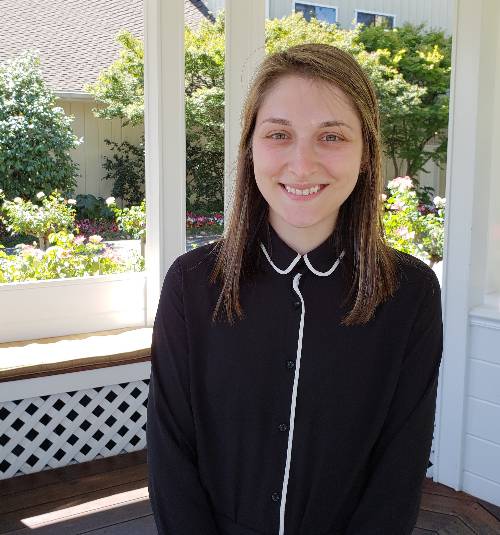
Renee Orefice is determined to create change. Renee holds a BS from Monmouth University in Psychology and Sociology as well as an MA in Teaching from Relay Graduate School of Education. She is currently a Kindergarten Teacher at Uncommon Schools, North Star Academy in Newark, New Jersey where the goal is to close the achievement gap. Renee believes that education equals freedom. Embarking in this work has been a commitment to ensure that students in urban communities make it to and through college. She has served as a counselor, a special education teacher, a kindergarten teacher, and is now seeking to expand her impact to educational policy. Renee is passionate about working in urban communities and is pursuing a Ph.D in Educational Leadership Policy so she may dismantle the systems of oppression that are designed to stifle children of color.
Why did you choose TTU's PhD in Educational Policy Leadership for your doctoral program?
I chose TTU's Ph.D in Educational Policy Leadership for my doctoral program because this program will give me the knowledge and tools to pursue research that ensures access to all children regardless of their race, ethnicity and socioeconomic status, as well as enhance my understanding of policies in the education system. By taking courses in leadership for school reform, educational policy and law, legal issues with special populations, process of educational change, policy analysis, policy issues, etc. I will be diving into different aspects of what these policies are, how they are created, and how they are used to transform the education system. Learning in depth about the laws, legal issues, and execution of these policies will allow me to understand what is happening in the education system and gear me in the direction towards how to make change so that these policies are enforcing equality.
What experiences in your career or previous education prepared you for a doctoral degree in educational leadership policy?
I currently work for North Star Academy in Newark, NJ. where our goal is to close the achievement gap. Embarking on this mission is more than just my work, it is a part of my life. In order to ensure that our students make it to and through college, we have a longer school year that starts in August and ends in June. We have a longer school day which starts at 7AM and ends at 4PM, and we work tirelessly to give our students the education they deserve regardless of their race, ethnicity, or socioeconomic background. Our mission at North Star Academy is personal for me, as I feel that the work I do in my classroom, aids daily in the fight for social equality in the education system. This program would help equip me to have a better understanding of the policies in place that impact my students as well as how to bridge the gap between the policies and practice.
What impact do you expect to have on education policy and leadership?
I expect to create change in the education system. I expect to change lives of children, especially children from low socioeconomic backgrounds and children of color. My students, and the students of all urban and low-income educators, are underrepresented and overlooked. I want to be their voice and provide our country's most at risk children with the opportunity to be seated at the table. With the help of this program, I will be able to pursue this passion and make the change that I know am destined to create.
MARIANNE PARK
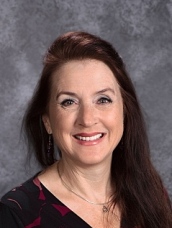
Marianne was raised by her British mother and American father in an Air Force family. Her mother had not graduated high school but encouraged her to pursue higher education and be a teacher. She has visited or lived in 13 countries and 39 states which has provided her experience in diverse cultures. Marianne received her B.A. in History from the University of Arkansas at Fayetteville and thirty years later, after raising her five children, got her M.Ed. in Curriculum and Instruction with a core in History from the University of Texas at Tyler. Professionally, she has taught all Social Studies subjects in 7-12th grades and is currently a Special Education English teacher. She is certified in Special Education, English Language Arts, Social Studies, English as a Second Language, and Gifted Talented in both Texas and Arkansas. Additionally, she holds a Principal as Instructional Leader certification. Personally, she has completed nine Ironman triathlons, various marathons, is a Master Gardener and enjoys camping with her Irish Setter dog.
Why did you choose TTU's PhD in Educational Policy Leadership for your doctoral program?
The well-known program is rigorous yet is flexible to be within the parameters of working full time. The personal encouragement from the professors make the distance learning applicable. The support team at TTU is fantastic to provide answers to questions. The cohort design has allowed friendships to be formed while collaborating on projects.
What experiences in your career or previous education prepared you for a doctoral degree in educational leadership policy?
I have seen first-hand the struggles of not only teachers but administrators and parents wanting students to succeed. Charter school and traditional classroom experiences have provided me with empathy and knowledge of leadership while promoting education even in uncertain times. I have had the benefit of gifted professors who have continued to support me to not quit and keep pursuing after excellence. Good teachers have been important in my life so I am fervent in my commitment of teacher retention and mentoring new teachers. I value communities for their support and influence on education.
What impact do you expect to have on education policy and leadership? (or more simply, what do you want to accomplish?)
My goal is to increase teacher retention in schools to improve student achievements. I envision a higher, focused retention effort of a committed and connected staff. With collegiality and solidarity of purpose, educators can withstand challenges and create change. I expect to be well informed with the necessary guidance to create change down into the classroom for the benefit of America's youth. I desire to be a positive influence in people's lives with my leadership.
MIGUEL REVELES
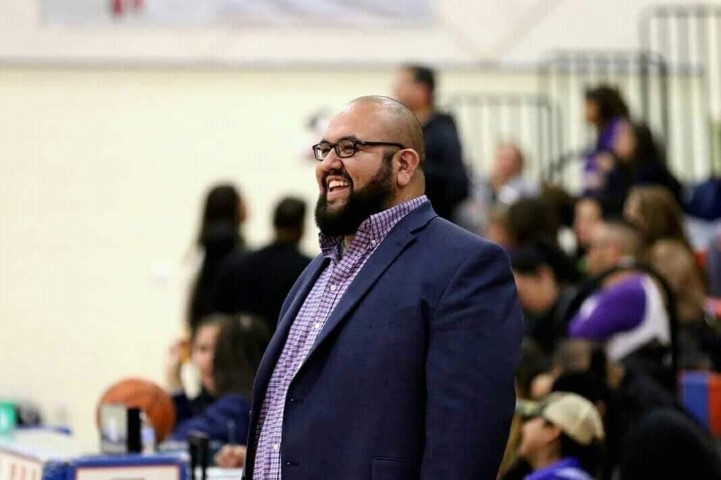
Miguel Reveles is a grow-in-the-ranks public school administrator with experience across all K-12. Miguel is a proud product of the public school system, and the first in his family to attend college. His goal is to change the policy space of public school to strategically dismantle oppressive policies that largely affect BIPOC students, with the goal of cementing safe and equitable spaces for students of all backgrounds.
Why did you choose TTU's PhD in Educational Policy Leadership for your doctoral program?
I chose TTU's Ed. Policy program because of Dr. Rebecca Hite and Dr. Jessica Gottlieb. We first met through the EPFP TX Fellows program, and they empowered me greatly. It was through that experience that I decided to enroll as a doctoral student in the Ed Policy program at TTU, and work with other great advocates in the Education Policy arena.
What experiences in your career or previous education prepared you for a doctoral degree in educational leadership policy?
I have been a public-school educator for the last 15 years, and through all of the experiences I have experienced the impact policy has on all stakeholders. As an administrator I thoroughly reflect about our local policies with our school and on the importance of writing equitable and multi-perspective policy.
What impact do you expect to have on education policy and leadership? (or more simply, what do you want to accomplish?)
I never wanted to partake in a PhD program because I had used school simply as a tool that helped me to attain the next job opportunity. However, through Texas EPFP, I saw an opportunity to seek out professional growth and cement my knowledge in the Texas education policy space. In the program I became enamored with policy, and its importance. I believe in the power of policy change to cement current and future outcomes for Texas public school students, and that is what prepared me to engage in this program.
EMMY ROBISON
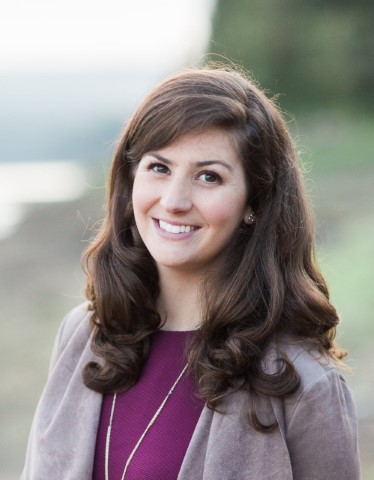
Emmy Robison is a current Vice Principal of a large PreK-8th grade Catholic school in Dallas. She has previously worked in administration at the high school level and taught third and first grade. She is a 2013 Teach For America alum who served in New Orleans. She holds a BA in American Studies with minors in Italian and Education, Schooling, and Society from the University of Notre Dame and a MA in Educational Leadership, also from the University of Notre Dame. Emmy's research interests include the politics of education at the local and national levels, as well as teacher morale/efficacy. These interests intersect in a passion for pursuing policy that helps all students receive an excellent education. Outside of the classroom, Emmy is kept on her toes by her two small children, Henry and Margot.
Why did you choose TTU's PhD in Educational Policy Leadership for your doctoral program?
I chose TTU's PhD in Educational Leadership because of the reputation of the faculty and the diverse research interests represented by both the students and the faculty. Being an R1 university, TTU has a strong reputation and commitment to research at the highest level. I was also hoping for a program where I could continue to follow my passions in my full-time job.
What experiences in your career or previous education prepared you for a doctoral degree in educational leadership policy?
In my role as a school leader, I am consistently asked to evaluate specific programs for their efficacy. In doing so, I had some experience with data analysis, however my skills have developed significantly as a result of my coursework and research.
What impact do you expect to have on education policy and leadership?
I My goal is to find ways to improve outcomes for all students from the policy lens. In my career as a teacher and school leader, I have had a locus of control that has not expanded beyond the classroom or school where I work. However, I know policy can be wide reaching and have great impacts on students. I hope to use my research to create or advocate for policies that have a positive impact on all students and teachers.
LYNN SANDERS
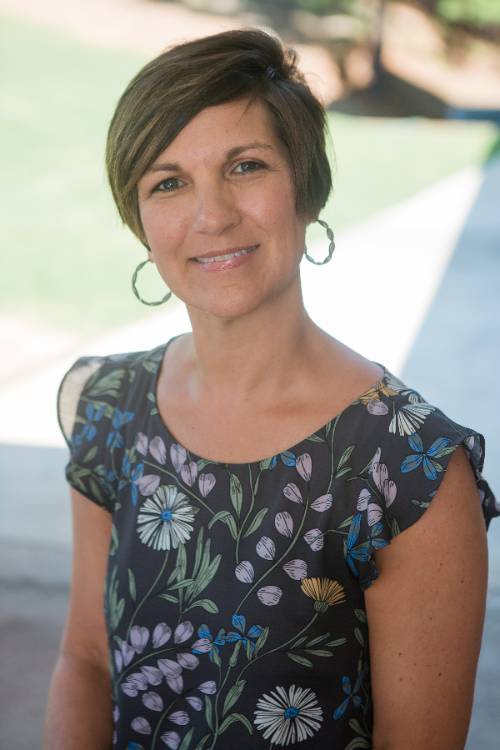
Born in Cranston, RI, Lynn loves to return to New England as often as possible to enjoy family and the beautiful surroundings. Moving to Georgia in high school has allowed her to experience schooling in different states as well as in both private and public sectors. Lynn always knew she wanted to be a teacher, and almost 30 years in the profession have proven to be very rewarding. Mrs. Sanders has both a Bachelor's and a Master's degree in Elementary and Early Childhood Education as well as experience across a spectrum of grade levels. She taught elementary school for 25 years in Kindergarten, first, second, and fifth grades. In addition, she taught at the college level for over 20 years as a part time instructor at Kennesaw State University in the Elementary and Early Childhood Education department. In the classroom, her focus has been on both math and literacy instruction. About 5 years ago, Lynn moved into an administrator role at a private, hybrid school just north of Atlanta, Georgia. She is currently pursuing her doctoral degree in Education Policy Leadership at Texas Tech University and still enjoys learning.
Why did you choose TTU's PhD in Educational Policy Leadership for your doctoral program?
As a life long learner, I continually look for opportunities to further my education and career. The program at Texas Tech encompassed all I desired by being online, holding high standards for learning, and rooted in research based practices. The course sequence and goals of the program matched my learning outcomes.
What experiences in your career or previous education prepared you for a doctoral degree in educational leadership policy?
As a part time college instructor and a school administrator, I have experience in both the policy and leadership aspects of the college program. My role in administration requires decision making that needs to be backed by sound, researched data. The experience of instructing students at all levels and making school wide decisions with an administrative team prepared me for the coursework Texas Tech offers.
What impact do you expect to have on education policy and leadership? (or more simply, what do you want to accomplish?)
I am currently an administrator at a private, hybrid school. The students come to school 2 days a week and complete work assigned by the classroom teacher the other 3. This unique model allows me to speak to experience and conduct research that may be valuable to a specific niche, especially during our nation's response to COVID. I hope to allow all of my education experiences to bring something to the table at Texas Tech.
JULIE ST. JOHN
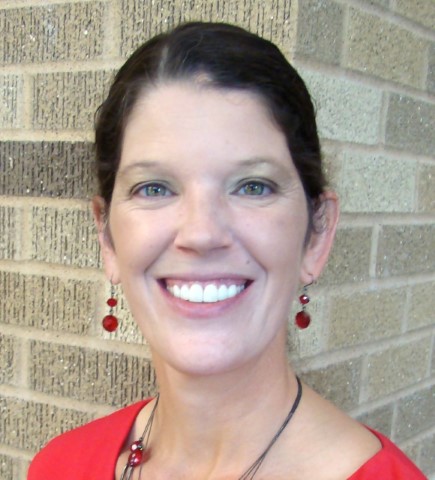
I am an Associate Professor in the Julia Jones Matthews School of Population and Public Health, Texas Tech University Health Sciences Center. I have a doctorate in public health from the University of Texas Health Science Center at Houston School of Public Health. My research interests include: health status and quality of life improvement; community health development and partnership approaches; Community Health Workers (CHWs); social justice/human trafficking; and education policy and advocacy. My scope of work includes: teaching; research; grant-writing; community assessments; strategic and operational planning; ; program development, implementation, and evaluation.
Why did you choose TTU's PhD in Educational Policy Leadership for your doctoral program?
In my tenure as faculty, I identified a hunger and passion regarding leadership, institutional policies, and institutional change/growth. I completed the Texas Women's Leadership Program (2019) and am participated in the TTUHSC One Team Fellows Leadership Program (2020-2021). I poured over leadership books and pod casts and devoured program content. Then, the Covid-19 Pandemic hit and led me to look for programs to help equip me as an academician and public health professional to prepare and develop policies the pandemic necessitated. Ultimately, I selected this program to become a better academician, professor, administrator, mentor and servant leader.
What experiences in your career or previous education prepared you for a doctoral degree in educational leadership policy?
I have worked in academic settings over twenty years--serving in various roles as a program coordinator, research associate, program director, and a faculty member. I have also had opportunities to serve in administrative roles--including Associate Chair, Assistant Dean, and Associate Dean. In my current department, I was the first faculty member (aside from our chair) hired to develop and begin a new academic degree program and obtain program accreditation. In this position, I helped develop departmental and school policies. More recently, as part of the One Team Fellows Leadership Program, I participated in developing policies and programs while strengthening leadership skills. Further, I completed a policy fellowship with the National Rural Health Association (NRHA) “Rural Health Policy Fellows Program” and the Rural Scholar program with The F. Marie Hall Institute for Rural and Community Health, TTUHSC. These experiences have laid some foundational principles of policy and leadership that will help me as I continue in this program.
What impact do you expect to have on education policy and leadership? (or more simply, what do you want to accomplish?)
I expect to be a change agent and advocate for educational policy and leadership in my institution and professional field. I expect to work alongside my leaders and peers to challenge the status quo and improve education quality and opportunities through policy and being a servant leader. I expect to help form the next generation of leaders, educators, and practitioners.
DAVID M. STOKOWSKI
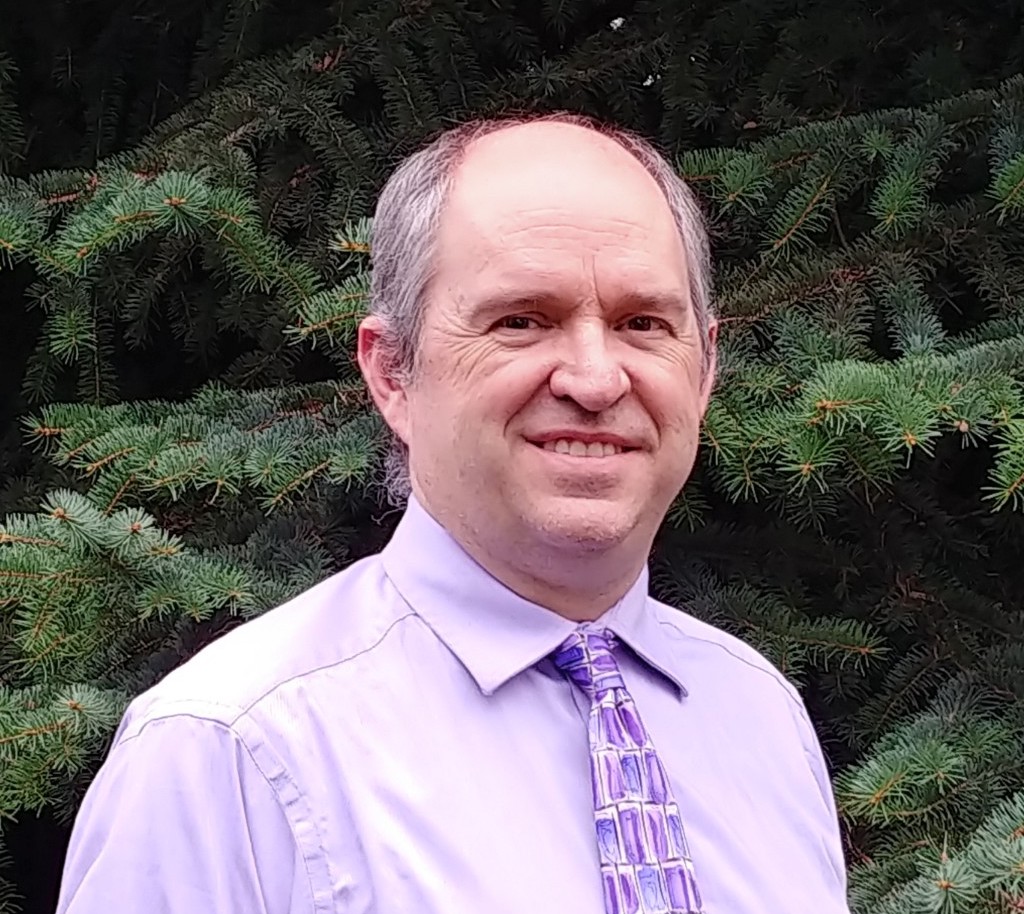
David has spent his entire career seeking to make a change in education. He holds a B.S. in Chemistry from the Colorado School of Mines, and an M.S. in Atmospheric Science from Colorado State University. David's first job after graduating was teaching 7th grade mathematics on an emergency license in Colorado. Since then, he has also taught physical science classes at both the university level as teaching staff, and the community college level as both adjunct and tenure-track faculty. David currently serves as a Principal Learning Consultant for Canvas as a dedicated resource to the Wyoming Department of Education providing Change Management services and Canvas expertise to all Wyoming K12 districts and teachers using Canvas.
Why did you choose TTU's PhD in Educational Policy Leadership for your doctoral program?
When searching for a graduate program I wanted a policy program that would allow me to be a remote student, taking classes fully online, while pursuing the research rigor of a PhD at a Tier 1 Research University. The Educational Leadership Policy PhD program at Texas Tech was the only program in the country that offered all these features in one place.
What experiences in your career or previous education prepared you for a doctoral degree in educational leadership policy?
At the community college level I have held both adjunct and tenure-track faculty positions in both urban and rural environments, held leadership positions as a Department Chair and as my college's representative to the system-wide Faculty Senate, while also being funded as a Principal Investigator in my only grant proposal submission. My tenure-track position was at an institution that held both Hispanic Serving Institution (HSI) and Native American Serving Non-Tribal Institution (NASNTI) statuses, serving a minority population approaching 80%. These successful experiences at nearly every level of a community college serving predominantly minority students, along with my strong analytical and mathematical background position me well to create data-driven research toward affecting and creating equitable policies for all community colleges, students and their faculty.
What impact do you expect to have on education policy and leadership?
I left my tenure-track teaching position due to policies that made it essentially impossible for me to continue teaching my students. It is for my former students and faculty colleagues that I carry on toward my PhD in Educational Leadership Policy. I now recognize that while these policies affected my employment, the systemic issues and threats facing rural community colleges across America are substantially more important. It is my hope that I can advocate for and implement equitable policies that will allow rural and minority serving community colleges to continue their mission of educating local students, so these students can be a force enabling their communities to flourish and thrive.
M. SCOTT TATUM
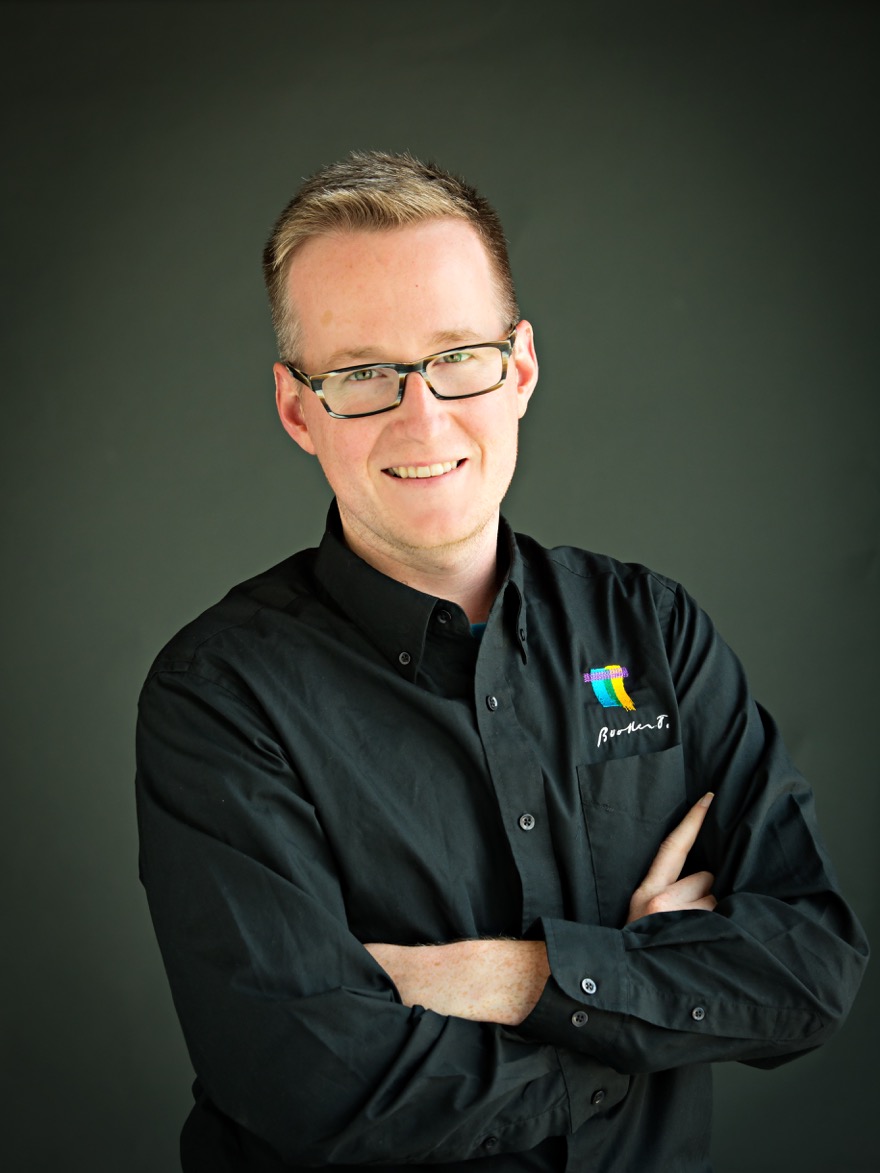
M. Scott Tatum is restless. After twenty-five plus years of active work in the arts as a dancer, actor, technician, designer, director, educator, producer, and administrator, he is looking for a way to make an even bigger impact. Scott has his BFA in Theatre Studies (2004) and a Master of Arts in Curriculum & Instruction and certificate in Arts & Cultural Administration & Entrepreneurship (2013) from the University of Texas at Austin. From 2004 to 2012, he was Head of Theatre at McCallum Fine Arts Academy in Austin ISD, focusing on innovative and cross disciplinary collaborative performance. There he was lead faculty member for multiple bond programs and tripled enrollment, program offerings, and venues. Outside of the classroom, his students engaged in authentic experiences alongside his design and directing work in the Austin theatre community. His work at McCallum and in Austin was featured in books from faculty at UT Austin (Lazarus, Signs of Change: New Directions in Theatre Education 2012), Karnataka State Open University (Purnima, Sharing Experiences, Varied Voices 2012), and Princeton (Wolf, Beyond Broadway: The Pleasure and Promise of Musical Theatre Across America 2020). In his recent five years in Dallas ISD, he has led curriculum revision at Booker T. Washington High School for the Performing and Visual Arts to focus on 21st century models of delivering integrated arts education and has had two proposals for future choice schools approved by the Board of Trustees for opening in Fall 2020 (Dr. MLK, Jr. Arts Academy, K-8) and Fall 2023 (Digital and Creative Arts High School).
Why did you choose TTU's PhD in Educational Policy Leadership for your doctoral program?
The intersection of expanding my impact on arts education and creative learning in schools and systematizing those anticipated changes requires a set of tools that are provided through the Educational Policy Leadership program. The format of delivery allows for continuous work in the field with direct access to pressing topics and implementation projects that brings to life the study of theory. The cohort model, made up of practitioners from around the world, provides an opportunity for collaboration and unique lenses of interpretation. The fact that most of my family originates in Lubbock or received their degrees from TTU gains back some credibility after two degrees from UT Austin.
What experiences in your career or previous education prepared you for a doctoral degree in educational leadership policy?
I am absolutely curious by nature. A tinkerer, I enjoy becoming familiar with the inner workings of systems and how to maximize them. As an artist and creative practitioner, I have approaches to work that allow me to see novel solutions to long standing challenges. I read a lot and stay up to date with ongoing studies relevant, and often not at all relevant, to my work, seeking how to integrate that new knowledge into my daily life. I've edited a PhD dissertation before (in Environmental Engineering) and was embedded in a doctoral cohort for much of my time in the Masters program. I enjoy a challenge and am invigorated by the opportunity to build new knowledge around the topics of interest that brought me to the program: creative learning, gifted & talented arts education, innovative technologies, and the third teacher/educational architecture.
What impact do you expect to have on education policy and leadership?
Ultimately, I'd like to investigate and build new frameworks of consideration on how the third teacher/educational architecture is impacting the development and redevelopment of arts focused schools. This brings questions of racial and social justice, funding of arts institutions, the appropriateness of the apprentice model of arts education, public & private partnerships, identification of gifted and talented students, teacher preparation models, strategic planning, mission/vision cycles, and many other topics together as we look at how motivations behind building or renovating school buildings impact the ambitions, productivity, and outcomes of arts focused campuses. This is a unique field that is underserved in its scholarly work and therefore missing direction on how to make appropriate policy and guide implementation.
MICHAEL TISDALE
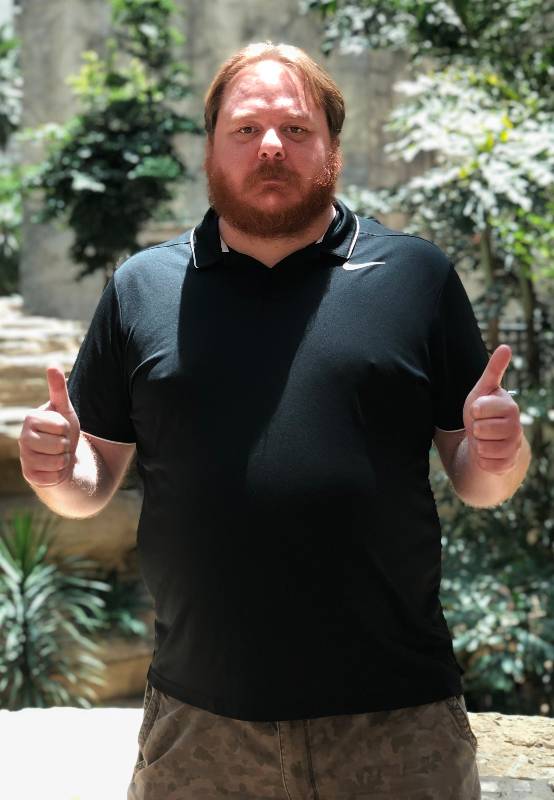
Michael Tisdale has been in the education field for ten years. Prior to working in education, Michael worked at a 7-11 convenience store for ten years in an eclectic part of the city which gave him the opportunity to meet, observe, and engage with people from all walks of life and backgrounds. Michael received his Bachelor's degree in American History and graduated Suma Cum Lade with the awards of most outstanding student in History and most outstanding student in Education which he had taken simultaneously to become a certified teacher. Michael then went on to earn a Masters degree in American History and was once again awarded most outstanding student in History. He went on to earn a Masters degree in Educational Leadership and became principal certified. Currently Michael is an assistant principal at a freshman high school.
Why did you choose TTU's PhD in Educational Policy Leadership for your doctoral program?
Texas Tech's Educational Policy Leadership program is online which is ideal for long distance learning.
What experiences in your career or previous education prepared you for a doctoral degree in educational leadership policy?
Earning a Masters in History was incredibly challenging and rewarding. The massive workload of reading, researching, and writing prepared me for the work required to earn an Educational Leadership degree which has also carried over to the Educational Policy Leadership program. Being employed as a teacher and an assistant principal and engaging with the educational community at multiple levels provides the opportunity to not only read or hear about educational policy, but to experience policy from the unique perspective of the education profession.
What impact do you expect to have on education policy and leadership? (or more simply, what do you want to accomplish?)
I hope to have a positive impact on education policy and research by encouraging educational institutions to be more critical of their policy designs and implementation moving schools away from policies implemented based on ideological perspectives into more evidence based empirical research.
AMANDA K. TREMAINE
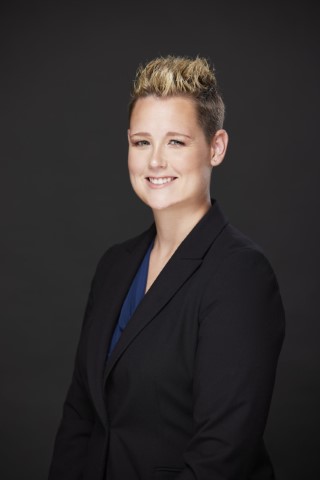
Originally from Broken Arrow, OK, Amanda currently resides in Okinawa, Japan, with her husband, who is active duty Air Force. While working full-time at a public school district in Tulsa, OK, she pursued a bachelor's degree in Business Administration with a concentration on management and marketing from Oklahoma State University. Upon graduating in 2015, Amanda moved to Norman, OK, a year later to begin a new job in the Provost's Office at the University of Oklahoma. During her tenure there, she pursued a master's degree in Administrative Leadership from OU and graduated in 2020. She currently works remotely as an Administrative Associate at a small construction company in Oklahoma while pursuing her doctorate from Texas Tech University. In her spare time, Amanda enjoys going on adventures with her husband on the island of Okinawa, traveling, keeping in touch with friends/family, reading, writing, playing the saxophone, and creating multimedia content.
Why did you choose TTU's PhD in Educational Policy Leadership for your doctoral program?
I wanted a doctorate from a respected university that focused on research and from an institution known for its quality education. Additionally, my husband is active duty Air Force. We can be sent anywhere in the world for his job (sometimes at little to no notice), so choosing a school with a flexible program was also a significant factor in my choice. The program's low cost, relative to other programs I was looking into at the time, was just icing on the cake. I honestly wanted to stay within the Big XII, and after receiving degrees from Oklahoma State and the University of Oklahoma, how could I pass up an opportunity to apply to a rival university (one which I wouldn't be roasted alive for attending)?
What experiences in your career or previous education prepared you for a doctoral degree in educational leadership policy?
I was employed with a public school district for three years and then the University of Oklahoma for two and a half years before relocating to Okinawa. During my tenure in the public school setting, I observed and saw education financial policies in practice from a staff member's perspective. While employed with this local public school district, I attended night/online courses at Oklahoma State University, which helped contrast my daytime role and provided a broader depth into Oklahoma's public school structure. During the final semester of my undergraduate degree, I was a marching band technician at a local high school. There, I instructed students one-on-one to pursue musical and visual excellence. This experience provided me with a secondary student's perspective and allowed me to observe how successful they could be if given the right tools, the right environment, and empathetic/high-quality educators.
During my tenure at the University of Oklahoma, I was exposed to financial, payroll, human resources, budgeting, and all other operations vital to a higher education institution's behind-the-scenes daily business. After being accepted as a graduate student, I began to focus on interdisciplinarity, research, and critical thinking outside of the black-and-white business world, a sharp contrast from my previous degree and previous jobs. A Lean Six Sigma certification opportunity became available to me during my time at OU, so I jumped on that, which has given me another set of skills to identify, analyze, and create more efficient processes. Continuous improvement is the name of the game!
What impact do you expect to have on education policy and leadership?
I expect to utilize my interdisciplinary knowledge of business administration, administrative leadership, Lean Six Sigma, and overall work experience within the staff side of the educational industry to provide comprehensive, effective, and efficient solutions to complex issues. I think it's also essential never to be complacent with knowledge, always be open-minded, and always be learning something new. I'm hopeful that I can translate that mindset into creating a more accommodating environment conducive to progress.
CHRISTA TUCKER
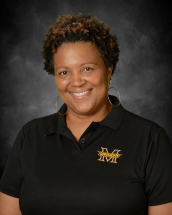
Christa L. Tucker has worked for 25 years in the education field, with 14 of those years spent as a professional school counselor. During these years, she has encountered and established an interest in various dynamics that influence access in education, especially for students from marginalized subpopulations that are perennially underrepresented in higher education. She has noted the implications of legislative updates relating to high school graduation requirements and new provisions allowing students to acquire college credits. In contrast, in high school, which has also ignited her interest in suitable policy and practice that can improve high school achievement among students of color. In particular, her research delves into factors influencing college readiness, college persistence, and eventual degree completion for students traditionally underrepresented in higher education.
Why did you choose TTU's PhD in Educational Policy Leadership for your doctoral program?
I love to learn! I believe it is a lifelong process that is exciting, infinite, and, best of all, can be experienced by each and every person. As a lifelong learner, I selected the TTU's Ph.D. program in Educational Policy because I have a strong desire to research and implement policies that impact educational opportunities to empower marginalized communities.
What experiences in your career or previous education prepared you for a doctoral degree in educational leadership policy?
An education career spanning over 20 years was my inspiration in pursuing various academic, professional, and personal goals. To attain these goals, I need to do research and apply different instructional tools and methods. My academic qualifications and background as a counselor equip me with crucial skills for addressing the challenges faced by students, including those with psychological disabilities. Ideally, I wish to pursue this doctoral program as a way of validating my analytical, research, data presentation, and decision-making abilities in educational counseling.
What impact do you expect to have on education policy and leadership? (or more simply, what do you want to accomplish?)
During the doctoral research program, I intend to focus on the factors that facilitate and hinder the successful transitioning of students from secondary learning institutions into colleges, psychological challenges that escalate proper learning, and differences in policies regarding the mental health of students from marginalized communities.
TRAVIS TURGEON
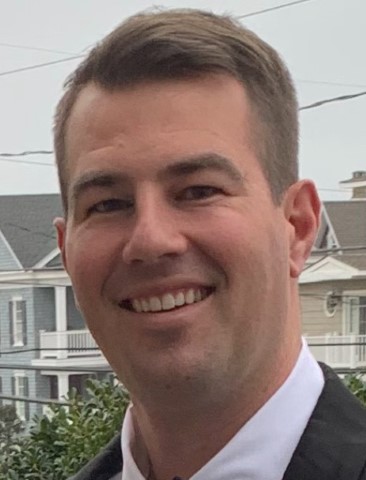
Travis graduated from Springfield College with a degree in physical education. He furthered his education with graduate degrees in history and education from Washington College and Stephen F. Austin. During his professional career as an educator, he has taught every grade from elementary through high school and spent time as an adjunct professor at Houston Community College. In addition, Travis has worked in college athletics, with time on the advancement and admissions aspects of higher education.
Why did you choose TTU's PhD in Educational Policy Leadership for your doctoral program?
I chose Texas Tech's program due to a recommendation from a college, the convenience for me as a full-time educator. The program has far exceeded my expectations and the faculty has been excellent in producing a challenging program that has helped me grow as an educator. I feel like I have grown exponential during my time in the program, as both an educator and a student
What experiences in your career or previous education prepared you for a doctoral degree in educational leadership policy?
My experiences in the classroom across multiple states have given me a perspective on the challenges educators face, and how challenging policy to practice can be. It has helped me realize that policy implementation is an intricate process.
What impact do you expect to have on education policy and leadership? (or more simply, what do you want to accomplish?)
I plan to continue researching and applying what I learn in my classroom and potentially as an administrator. I an open to many aspects, although my calling is to have my feet on the ground in the trenches of education, wherever that may be.
LATREYE WATERS
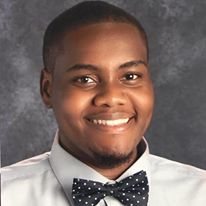
Originally from Marietta, Ga, Latreye began his educational career by graduating from Augusta State University in 2016 Bachelors of Science in Early Childhood Education. Immediately following the confirmation of his degree and after being a school secretary and bus driver, Latreye took over the 1st-grade class that he also interned in. Shortly Afterwards, Latreye went on to advance his education by attending Valdosta State University, where he received his Master of Arts degree in Curriculum and Instruction in 2018. During this time, he had finished his second year of teaching in a 3rd grade Math and Science classroom. At this time, Latreye met the love of his life (a beginning teacher in his district) and was married shortly after. After his second year of teaching, Latreye decides to move closer to where his wife was from (Ciudad Juarez), in the far west town of El Paso, TX, where he resides with his wife and two dogs. At his current age of 26, Latreye began his third year of teaching in an all-subject 3rd-grade class in the Socorro Independent School District. One year later, Latreye currently serves as an Instruction coach and is in his last semester of school at Lamar University, where he will receive his principal certification. Latreye foresees himself becoming a school principal and later a Superintendent of Schools. Latreye anticipates his completion of his Doctoral Degree to be in the Spring of 2023.
Why did you choose TTU's PhD in Educational Policy Leadership for your doctoral program?
I chose TTU's Ph.D. in Educational Policy Leadership program because I am a full advocate for learning and furthering oneself. I believe that education never stops and that anyone at any time can learn and grow. I have always set high goals for myself, and once I finished my master's degree and moved to Texas, I knew that I had to begin a new long-term journey. I choose Texas Tech because of its Tier one status and its respective foundation to creating world-class working professionals. Alongside my willingness to grow, I want to be the first person in my family and social community to carry the title of Doctor. I knew from the beginning of this program that no class or day would be easy, but I am always up for the challenge.
What experiences in your career or previous education prepared you for a doctoral degree in educational leadership policy?
Education has always been my biggest passion. From a very young age, I set the goal of becoming a teacher. In elementary, a teacher inspired me to teach and be in the education field. Although I only directly taught for three years, I found that I hold unique talents that could not only be contained in a classroom. My talents consist of developing and implementing ideas and programs for children to learn in an extraordinary way. While I was in the classroom, I made many big decisions and ensured that my students learned and indeed have a fun and engaging time. My time in the classroom taught me that I need to share my talents with more people. I know that by entering the doctoral field and being in the educational field, I can reform our education system to allow students and educators to grow in a fun and motivational way.
What impact do you expect to have on education policy and leadership? (or more simply, what do you want to accomplish?)
Once finished with my doctoral degree, I plan to move higher in the leadership field and become a district official. I plan to be able to travel and help represent my district in policymaking and implementation. I hope to make a positive impact wherever I am while always remember the needs of students and educators.
BRIAN WELLER

Brian's background is based mostly in business and entrepreneurship. While completing a BS in Business Administration at Utah State University in 2013, Brian started his first business and has launched several since then. After completing an MBA he began mentoring students and teaching entrepreneurship courses at USU and other institutions. Brian and his wife live in Logan, Utah, and manage their businesses and other interests from there.
Why did you choose TTU's PhD in Educational Policy Leadership for your doctoral program?
I chose the program at TTU for two main reasons. First, the broadcast format allows me to maintain a career while pursuing the degree. Second, and most important, the PhD in Educational Policy and Leadership allows me to research and focus on topics that are relevant and interesting to me. The flexibility of time, and emphasis are ultimately what made me choose TTU.
What experiences in your career or previous education prepared you for a doctoral degree in educational leadership policy?
Obtaining a master's degree showed me that higher education can and should be more than busy work. Admittedly I did not necessarily enjoy my undergraduate experience. Continuing my education opened my eyes to the idea that higher education can and should be engaging, interactive, and meaningful. Student teaching, conducting seminars, guest lecturing, and other teaching opportunities ignited a desire to be an educator and facilitator in a more integral role.
What impact do you expect to have on education policy and leadership? (or more simply, what do you want to accomplish?)
I am very much looking forward to teaching at the university level and impacting students' experience. Beyond the classroom, I expect that a PhD from TTU will prepare me to facilitate positive change at universities and other levels of education. I am confident that I will be prepared to be an effective educator and administrator creating lasting change for the better.
BRITTANI WILLIAMS
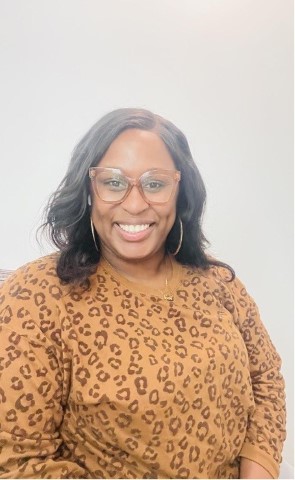
Brittani Williams is a native of Baton Rouge, Louisiana currently serving as a Senior Policy Analyst for Higher Education in Washington, D.C. She earned her Master of Arts Degree in Education, specializing in Higher Education Administration at Louisiana State University, A & M College. With over 10 years of experience in Higher Education as a practitioner and policy leader, Brittani has served in federal, state, and campus student support capacities. Her research interest broadly focuses on postsecondary support and outcomes for historically marginalized populations. Brittani is a proud wife and a mother of three sons: Nathan, Noah, Eric II.
Why did you choose TTU's PhD in Educational Policy Leadership for your doctoral program?
When I began looking for my doctoral program, I had a specific list. I needed a doctoral program that would help me develop into a researcher that spanned the P20 gamut with a policy perspective, amongst a few other things, and TTU's Ph.D. in Educational Policy Leadership program met all of my needs.
What experiences in your career or previous education prepared you for a doctoral degree in educational leadership policy?
My experience working with TRIO, GEAR UP, statewide, and non-profit outreach programs has allowed me to identify the actions steps needed to make an impact on student support and post-secondary readiness. Through that identification process as a practitioner, I have been able to put into practice policy/mandates on various levels that support student's post-secondary readiness and attainment. The aforementioned is what has drawn me to and prepared me for this doctoral degree. I am excited about bringing together my practitioner work with education policy research and understanding.
What impact do you expect to have on education policy and leadership?
I hope to be able to add a meaningful impact on post-secondary readiness through education policy and leadership. As previously stated, in my experience, I have been able to identify the gap between high school completion and post-secondary planning and attainment. I aspire that my impact will assist in enhancing the effectiveness of support systems for marginalized students and families as they are preparing for their futures through policy research, implementation, and accountability.
CAITLIN WYNHAM
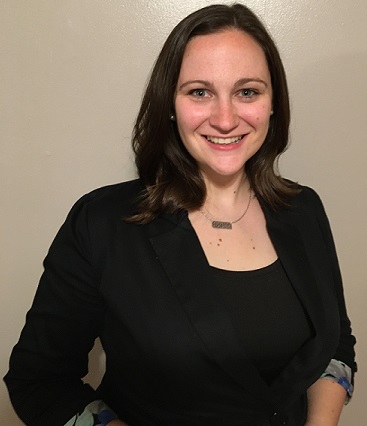
Caitlin Wynham is a special education teacher at Eastern View High School in Culpeper, Virginia. Caitlin earned a B.S. in History: Non-Western Studies from Chatham University and an M.Ed. with a focus on Special Education, mathematics from Slippery Rock University. Starting her career in education as the only substitute teacher for a junior high/high school, Caitlin has taught almost every subject area. With a focus on special education and mathematics, Caitlin works with collaborative teaching teams to support special education students in the general education setting. Caitlin is a liaison/lead mentor for the Virginia Department of Education Co-Teachers of Virginia grant and mentor program, mentoring new teaching pairs as well as developing lesson plans for use in collaborative classrooms across Virginia. Caitlin also serves as the department chair and designee for special education at a rapidly growing rural high school.
Why did you choose TTU's PhD in Educational Policy Leadership for your doctoral program?
When I decided I was ready to continue my education, I knew that I needed a program that would allow me to continue working full-time and participate through a distance learning/online platform. I also wanted to be part of a program with high expectations, rigor, and a strong focus on research and application. The Educational Leadership Policy Program at Texas Tech meets all of these requirements for me!
What experiences in your career or previous education prepared you for a doctoral degree in educational leadership policy?
As a veteran teacher I have worked with many educational leaders, watched policy change around me, and on few occasions helped to implement new policy. I recognize the importance of strong educational leaders who are both creating and implementing policy decisions; I have experienced the unnecessary challenges when policy is insufficiently researched or implemented. Working as a substitute teacher, history teacher, special education teacher, department chair, and liaison for Virginia DOE collaborative teaching grants, I recognize my need for research and growth to better support new and veteran teachers.
What impact do you expect to have on education policy and leadership?
I am constantly faced with the challenge of teacher retention, primarily due to lack of support from educational leaders at the building level and higher. I intend to partner with local school districts and state DOE to review requirements for teacher certification and recertification. I would like to determine areas of need for teachers, as well as training for leaders to better support teachers, leading to increased retention.
College of Education
-
Address
Texas Tech University, College of Education, 3002 18th Street Lubbock, TX 79409 -
Phone
(806) 742-2377 -
Email
educ.webmaster@ttu.edu
